
12 Ways to Quickly Improve Your Academic Essay Writing Skills
#scribendiinc
Written by Scribendi
Anyone can learn to produce an academic essay if they begin with a few basic essay-writing rules.
An academic essay must be based upon a solid but debatable thesis, supported by relevant and credible evidence, and closed with a succinct and thorough conclusion.
By adhering to the best way to write an essay, you can create valuable, persuasive papers even when you're under a time crunch!
What Makes a Good Essay?
As previously noted, the foundation of any good academic essay is its thesis statement.
Do not confuse your thesis with your opening sentence. There are many good ways to start an essay , but few essays immediately present their main ideas.
After you draft your thesis, you can begin to develop your essay around it. This development will include the main supporting points of your essay, which will scaffold its main body.
Essays also typically include a relevant and compelling introduction and conclusion.
Learn How to Write a Great Thesis Statement .

Understanding How to Write a Good Essay
When writing an academic essay, you must take a number of qualities and characteristics into careful consideration. Focus, development, unity, coherence, and correctness all play critical roles when it comes to distinguishing an exceptional essay from one that is less than perfect.
The following essay-writing tips can help writers organize, format, and support their essays in ways that fit their intended purpose and optimize their overall persuasiveness. Here are 12 essay tips for developing and writing your next academic paper.
1. Know What You Are Going to Write About Before You Start Writing
While untrained writers might just sit down and start typing, educated and experienced writers know that there are many steps to writing an essay.
In short, you should know what you want to say before you type a single word. The easiest way to narrow down a thesis and create a proper argument is to make a basic outline before you begin composing your essay.
Your outline should consist of rough notes that sketch out your introduction (including your thesis), the body of your essay (which should include separate paragraphs that present your main supporting points with plenty of evidence and examples), and your conclusion (which ties everything together and connects the argument back to your thesis).
2. Acquire a Solid Understanding of Basic Grammar, Punctuation, and Style
Before getting into more refined essay-writing techniques, you must have a solid grasp of grammar, punctuation, and style. Without these writing fundamentals, it will be difficult to communicate your ideas effectively and ensure that they are taken seriously.
Grammar basics include subject and verb agreement, correct article and pronoun use, and well-formed sentence structures. Make sure you know the proper uses for the most common forms of punctuation. Be mindful of your comma usage and know when a period is needed.
Finally, voice is tremendously important in academic essay writing. Employ language that is as concise as possible. Avoid transition words that don't add anything to the sentence and unnecessary wordiness that detracts from your argument.
Furthermore, use the active voice instead of the passive whenever possible (e.g., "this study found" instead of "it was found by this study"). This will make your essay's tone clear and direct.
3. Use the Right Vocabulary and Know What the Words You Are Using Actually Mean
How you use language is important, especially in academic essay writing. When writing an academic essay, remember that you are persuading others that you are an expert who argues intelligently about your topic.
Using big words just to sound smart often results in the opposite effect—it is easy to detect when someone is overcompensating in their writing.
If you aren't sure of the exact meaning of a word, you risk using it incorrectly. There's no shame in checking, and it might save you from an embarrassing word misuse later!
Using obscure language can also detract from the clarity of your argument—you should consider this before pulling out a thesaurus to change a perfectly appropriate word to something completely different.
4. Understand the Argument and Critically Analyze the Evidence
While writing a good essay, your main argument should always be at the front of your mind. While it's tempting to go off on a tangent about an interesting side note, doing so makes your writing less concise.
Always question the evidence you include in your essay; ask yourself, "Does this directly support my thesis?" If the answer is "no," then that evidence should probably be excluded.
When you are evaluating evidence, be critical and thorough. You want to use the strongest research to back up your thesis. It is not enough to simply present evidence in support of an argument. A good writer must also explain why the evidence is relevant and supportive.
Everything you include should clearly connect to your topic and argument.

5. Know How to Write a Conclusion That Supports Your Research
One of the most overlooked steps to writing an essay is the conclusion. Your conclusion ties all your research together and proves your thesis. It should not be a restatement of your introduction or a copy-and-paste of your thesis.
A strong conclusion briefly outlines the key evidence discussed in the body of an essay and directly ties it to the thesis to show how the evidence proves or disproves the main argument of your research.
Countless great essays have been written only to be derailed by vague, weakly worded conclusions. Don't let your next essay become one of those.
6. Build a Solid Thesis to Support Your Arguments
A thesis is the main pillar of an essay. By selecting a specific thesis, you'll be able to develop arguments to support your central opinion. Consider writing about a unique experience or your own particular view of a topic .
Your thesis should be clear and logical, but it should also be debatable. Otherwise, it might be difficult to support it with compelling arguments.
7. Develop an Interesting Opening Paragraph to Hook In Readers from the Get-Go
No matter how you begin your essay, you must strive to capture the reader's interest immediately. If your opening paragraph doesn't catch the eye and engage the brain, any attempt at persuasion may end before the essay even starts.
The beginning of your essay is crucial for setting the stage for your thesis.
8. Always Remember to Edit and Proofread Your Essay
Any decent writer will tell you that writing is really rewriting. A good academic essay will inevitably go through multiple drafts as it slowly takes shape. When you arrive at a final draft, you must make sure that it is as close to perfect as possible.
This means subjecting your essay to close and comprehensive editing and proofreading processes. In other words, you must read your paper as many times as necessary to eliminate all grammar/punctuation mistakes and typos.
It is helpful to have a third party review your work. Consider consulting a peer or professional editing service. Keep in mind that professional editors are able to help you identify underdeveloped arguments and unnecessarily wordy language, and provide other feedback.
Get Critical Feedback on Your Writing
Hire an expert academic editor , or get a free sample, 9. when developing your essay's main body, build strong and relevant arguments.
Every sentence in the main body of your paper should explain and support your thesis. When deciding how much evidence to include in an academic essay, a good guideline is to include at least three main supporting arguments.
Those main supporting arguments, in turn, require support in the form of relevant facts, figures, examples, analogies, and observations.
You will need to engage in appropriate research to accomplish this. To organize your research efforts, you may want to develop a list of good research questions .
10. Choose the Format of Your Essay before Writing It
The final shape that your essay takes depends a great deal on what kind of format you use. Popular college essay format types include the Modern Language Association of America ( MLA ), American Psychological Association ( APA ), and Chicago Manual of Style ( Chicago style).
These formats govern everything from capitalization rules to source citation. Often, professors dictate a specific format for your essay. If they do not, you should choose the format that best suits your field.
11. Create Clear Transitions between Your Ideas
Although unnecessary transition words are the enemy of clarity and concision, they can be invaluable tools when it comes to separating and connecting the different sections of your essay.
Not only do they help you express your ideas but they also bring a cohesive structure to your sentences and a pleasant flow to your writing. Just be sure that you are using the right transition words for the right purpose and to the proper effect.
12. Always Include an Organized Reference Page at the End of Your Essay
As a key component of MLA, APA, and Chicago Style formatting, the reference or Works Cited page is an essential part of any academic essay.
Regardless of the format used, the reference page must be well organized and easy to read so that your audience can see exactly where your outside information came from.
To produce a properly formatted reference page, you may have to familiarize yourself with specialized phrases and abbreviations, such as " et al ."

How to Write a Good Hook for an Essay
The key to a good hook is to introduce an unexplored or absorbing line of inquiry in your introduction that addresses the main point of your thesis.
By carefully choosing your language and slowly revealing details, you can build reader anticipation for what follows.
Much like an actual worm-baited fishing hook, a successful hook will lure and capture readers, allowing the writer to "reel them in."
How to Get Better at Writing Essays
You can get better at writing essays the same way that you improve at anything else: practice, practice, practice! However, there are a few ways that you can improve your writing quickly so you can turn in a quality academic essay on time.
In addition to following the 12 essay tips and guidelines above, you can familiarize yourself with a few common practices and structures for essay development.
Great writing techniques for essays include brainstorming and tree diagrams, especially when coming up with a topic for your thesis statement. Becoming familiar with different structures for organizing your essay (order of importance, chronological, etc.) is also extremely helpful.
How to Write a Good Introduction for an Essay
To learn how to write a good essay, you must also learn how to write a good introduction.
Most effective essay introductions begin with relatively broad and general subject matter and then gradually narrow in focus and scope until they arrive at something extremely specific: the thesis. This is why writers tend to place their thesis statements at the very end of their introductory paragraph(s).
Because they are generally broad and often relate only tangentially to an essay's main point, there is virtually no limit on what the beginning of a good introduction can look like. However, writers still tend to rely on somewhat cliché opening sentences, such as quotations and rhetorical questions.
How to Write a Good Conclusion for an Essay
Briefly put, a good conclusion does two things. It wraps up any loose ends and drives home the main point of your essay.
To learn how to write a good conclusion, you will want to ensure that no unanswered questions remain in the reader's mind. A good conclusion will restate the thesis and reinforce the essay's main supporting points.
Take Your Essay from Good to Great
About the author.

Scribendi's in-house editors work with writers from all over the globe to perfect their writing. They know that no piece of writing is complete without a professional edit, and they love to see a good piece of writing turn into a great one after the editing process. Scribendi's in-house editors are unrivaled in both experience and education, having collectively edited millions of words and obtained nearly 20 degrees collectively. They love consuming caffeinated beverages, reading books of various genres, and relaxing in quiet, dimly lit spaces.
Have You Read?
"The Complete Beginner's Guide to Academic Writing"
Related Posts

How Academic Writing Differs from Other Forms of Writing

How to Master the 4 Types of Academic Writing

The Complete Beginner's Guide to Academic Writing
Upload your file(s) so we can calculate your word count, or enter your word count manually.
We will also recommend a service based on the file(s) you upload.
English is not my first language. I need English editing and proofreading so that I sound like a native speaker.
I need to have my journal article, dissertation, or term paper edited and proofread, or I need help with an admissions essay or proposal.
I have a novel, manuscript, play, or ebook. I need editing, copy editing, proofreading, a critique of my work, or a query package.
I need editing and proofreading for my white papers, reports, manuals, press releases, marketing materials, and other business documents.
I need to have my essay, project, assignment, or term paper edited and proofread.
I want to sound professional and to get hired. I have a resume, letter, email, or personal document that I need to have edited and proofread.
Prices include your personal % discount.
Prices include % sales tax ( ).


- SUGGESTED TOPICS
- The Magazine
- Newsletters
- Managing Yourself
- Managing Teams
- Work-life Balance
- The Big Idea
- Data & Visuals
- Reading Lists
- Case Selections
- HBR Learning
- Topic Feeds
- Account Settings
- Email Preferences
A (Very) Simple Way to Improve Your Writing
- Mark Rennella

It’s called the “one-idea rule” — and any level of writer can use it.
The “one idea” rule is a simple concept that can help you sharpen your writing, persuade others by presenting your argument in a clear, concise, and engaging way. What exactly does the rule say?
- Every component of a successful piece of writing should express only one idea.
- In persuasive writing, your “one idea” is often the argument or belief you are presenting to the reader. Once you identify what that argument is, the “one-idea rule” can help you develop, revise, and connect the various components of your writing.
- For instance, let’s say you’re writing an essay. There are three components you will be working with throughout your piece: the title, the paragraphs, and the sentences.
- Each of these parts should be dedicated to just one idea. The ideas are not identical, of course, but they’re all related. If done correctly, the smaller ideas (in sentences) all build (in paragraphs) to support the main point (suggested in the title).
Where your work meets your life. See more from Ascend here .
Most advice about writing looks like a long laundry list of “do’s and don’ts.” These lists can be helpful from time to time, but they’re hard to remember … and, therefore, hard to depend on when you’re having trouble putting your thoughts to paper. During my time in academia, teaching composition at the undergraduate and graduate levels, I saw many people struggle with this.
- MR Mark Rennella is Associate Editor at HBP and has published two books, Entrepreneurs, Managers, and Leaders and The Boston Cosmopolitans .
Partner Center
- Tips for Reading an Assignment Prompt
- Asking Analytical Questions
- Introductions
- What Do Introductions Across the Disciplines Have in Common?
- Anatomy of a Body Paragraph
- Transitions
- Tips for Organizing Your Essay
- Counterargument
- Conclusions
- Strategies for Essay Writing: Downloadable PDFs
- Brief Guides to Writing in the Disciplines
8 Tips to Write Better Essays in English
Learning a foreign language is an overwhelming experience, especially if it’s one of the most widely spoken languages in the world – English.
Many people are under the impression that learning to read and speak in English is enough without realizing that written English skills are an equally vital asset to have.
From improving academics to boosting career prospects – the ability to write in English not only lets you communicate and express yourself better in today’s globalized world but also makes you more confident.
An effective way to improve your writing skills is to write essays. Wondering where to begin? We bring you eight useful tips to write better essays in English.
1. Keep a Vocabulary Notebook
Using the right vocabulary is an essential element of writing essays. When you make efforts to expand your vocabulary, you will be able to pick accurate words to take your writing to the next level.
Instead of coming across new words and forgetting about them, it’s a good idea to make a note of them in your vocabulary notebook. Doing this helps you remember the meanings of new words and you can also refer to it while writing essays.
So, give yourself a target to learn at least ten new words every day, which you can jot down in your diary and take baby steps in building a strong vocabulary.
2. Refer to Credible Sources
Research forms the first step in writing any kind of essay. The stronger your research, the better is the quality of your essay.
At a time when we have access to a wide range of data, it’s important to evaluate research sources carefully and only refer to credible ones. For example, Wikipedia is not a reliable source and should not be attributed to while writing essays.
Take the effort to read through published journals, research studies, scholarly papers, academic databases, and encyclopedias published within the last 10-15 years. It’s also important to assess the credibility of the author while evaluating the source.
3. Draft a Basic Outline
Once you’ve done your research, don’t rush to write. Take a moment to draft a basic outline for your essay and organize your research and findings.
“Is that necessary,” you ask? Very much.
Working on an outline lets you approach the essay in an organized manner. It serves as the skeleton of your paper while ensuring you’re not missing out on any information and that your points flow logically.
Most essays are categorized into – introduction, body, and conclusion.
The introduction is where you introduce the topic and give context. The body paragraphs need to include your arguments and research methodology (if any). The conclusion needs to reiterate the thesis statement and tie all the points together.
4. Hook the Reader
With attention spans getting shorter with time, it’s become all the more important to start with a bang and hook the reader from the beginning to ensure they are invested in your writing.
Essay hooks refer to the first one or two sentences of your essay which have the power to make or break the reader’s interest. The key is to write a hook that grabs the reader’s attention and reels them in.
From an alarming statistic and relevant quote to using humor and asking a rhetoric question – there are various tactics you can employ to keep the reader engaged.
If you’re unable to think of an impactful essay hook, don’t waste too much time on it. Finish the rest of your essay and come back to write a compelling hook later.
5. Use the Pomodoro Technique
It’s not easy to write an essay in one go, especially if it’s not in your first language.
A smart way to approach essay writing is to use the Pomodoro technique. This technique asks you to set a timer for 25 minutes to finish your task in question and then take a 5-minute break. After four cycles of repeating this, you get to take an extended 20-minute break.
So, start with breaking down the assignment into smaller tasks such as research, outlining, writing the different paragraphs, citing references and proofreading. You can then set the timer, start working on the essay as per the technique and track your progress.
Using this technique keeps distractions at bay and helps you stay more focused.
6. Pay Attention to Grammar Rules
You may raise interesting points in your essay, but poor grammar disrupts the reading experience and should be avoided at all costs.
Be careful when adding punctuations, check your sentence formations, avoid passive voice as much as possible and know the difference between adjectives, adverbs, nouns and verbs.
So abide by grammar rules to deliver a well-written and cohesive essay.
7. Write with Clarity
You might be tempted to use complex metaphors and jargons to impress the reader, but the truth is, none of that guarantees “good” writing.
One of the most important ingredients of effective writing is clarity. You don’t want to leave the reader confused and puzzled after reading your essay. So, use simple words, stop beating around the bush and explain concepts with the help of examples because clear writing always wins.
8. Reread the Essay
Finally, make it a point to proofread your essay (multiple times) to ensure you have covered all the aspects, cited references accurately and not made any silly errors.
It’s a good idea to read your essay out loud so you’re able to identify errors and awkwardly formed sentences with ease. You should also get a friend or family member to read your essay, to spot mistakes or discrepancies that you may have overlooked.
You may also like:
- I Don’t Understand, Do You?
- Simple English Videos
- Listen&Learn: The Berlin Wall
35 comments
Thanks a lot all we can derive from reading is the technique to write with clarity, good research and involvement of readers in writing.
Thank a lot dear EnglishClub, it’s help me a lot
I think it is very good site for learn essay writing
As a teacher trainer this contribution is helpful
Thanks for the tips! I’ll have an essay tomorrow and this will surlely prepare me!
Thank you so much
Thanks Please I will like to know more
thank you so much for your amazing informations
encyclopedias
encyclopaedias
Nice one but I don’t understand yet
Knowledge supporter is who u are, keep d good work nd ur reward is from God nd thanks.
thanks alot for your tips…your tips will help me alot while examss!!!
Thank you so much for information ☺️
Thank you ☺️
Thank you 💯💯💯💯💯💯
My hobby is home garden
ur intentinon and thoughts was very nce its useful to somny pepole to learn english tysomuch adela belin
Thanks you for helping
This did help a lot! Thank you very much 🥰
Good tips, I should give it a try, after all, we all improve by exercising hard so I’ll just do the same thing, but right now I gotta focus on what matters, and what I need now is to read as much as I can to know how to spell the words right. Is grammar so important in this task, I mean can’t I just pick the things up because of my experience in listening skill ?
Thanks for the information!
This is a nice explanation ,,,,,proud of you!
Is very interesting for me I really apreicete you help
Thanks so much for these useful tips!! Now, I need to start preparing my essay (“starting” has been always the stone on my way :$)
Please, what is the difference between an essay and an article?
Are they same?
Thanks in advance,
Thanks & best regards English Club
Helpful updated tips to share with our students!! thankssss
I want to know if it is only at the University or if we may take the course online.
Thank you verry much for important advices
thank for your key points, this is really helpful
Thank you and best wishes,
Very pragmatic and helpful essay. Thank so much English club
Leave a comment
Email * (not published)
You are using an outdated browser. Please upgrade your browser or activate Google Chrome Frame to improve your experience.
Baby Steps: 10 Proven Tips to Write Better Essays in English
If writing an essay sounds a little bit scary, just think of it as a chance to improve your writing skills .
Nobody expects your first essay to be perfect. Just make sure you learn something new every time you write an essay, and you will grow your abilities.
We’re going to help you out with ten tips for writing better essays while you’re learning English .
1. Create a Word Bank
2. act like a reporter, 3. create topic sentences, 4. argue both sides, 5. read backwards, 6. use an online thesaurus and a dictionary, 7. combine and separate sentences, 8. have a native english speaker edit your essay, 9. review the whole essay with your friend, then rewrite it, 10. use online apps, and one more thing....
Download: This blog post is available as a convenient and portable PDF that you can take anywhere. Click here to get a copy. (Download)
This is an interesting approach to writing your essay. First, choose a topic and write a thesis . A thesis is the main argument of your essay. For instance, if your topic is reading, your thesis might be “Reading makes you smarter.”
Once you have a thesis, think about your main topic and find words that relate to it in different ways. Then, branch out (broaden, diversify) your list to words that aren’t as closely related to your main topic.
For the example above, your primary list might include words like “books,” “reading” and “intelligent.” Your other “branched out” list might include “Harry Potter,” “reading by a fire” or “test scores.”
This process will help expand your vocabulary over time. Using these words when you write will also make your essay more vibrant (energetic, colorful).
When you are first assigned the topic, go ahead and really explore the possible options for your thesis. Ask questions. Get curious. The more questions you ask before you start writing, the more information you will have to use in the essay.
A strong essay is one that covers a lot of content in a succinct (short, to-the-point) way. This process of acting like a reporter will give you valuable quotes, resources and vocabulary to begin the writing process.
For instance, if you’re writing about a new diet plan , you might ask questions like, “Who is the best candidate for this diet plan?,” “How can someone get started?” and “What is the hardest part of this plan?”
A topic sentence is the first sentence in a paragraph, and it summarizes the rest of the paragraph. You can create them first to help you stay on track when writing your essay.
For the thesis “Reading makes you smarter,” one paragraph’s topic sentence might be, “Newspapers make you more aware of current events.” Another paragraph’s topic sentence could be, “Reading plays and classic literature will make you more cultured.”
If you’re writing about the three main issues facing writers today, you could write three full sentences that each address one main issue. Set these aside. Then, when you start writing the essay, refer to your topic sentences to create a solid structure that begins at point A and ends at point C.
If you have to write a longer or more complex essay, it might help to outline both sides of the argument before you start writing. When you write the essay, you will need to choose one side to focus on. But as you prepare, having a side-by-side list of points can be helpful in developing your thesis.
Also, by arguing for the opposite side of your opinion, you will learn which points you need to better address in your essay. You will learn more about the topic, and you will gain more vocabulary words to enrich the essay.
As an example, you might be writing an essay arguing that people should drink less coffee. To argue both sides, you’ll need to consider the opposite side: the benefits of coffee. How will people quit if they are addicted? What about the antioxidants in coffee? Aren’t those good for you? Really explore the entire concept (both sides of the argument) before you write.
Proper grammar is difficult for even the most fluent English speakers. Because you are learning English, you actually have an advantage. Many native speakers learned improper grammar from the start. It’s difficult to undo the damage caused by a lifetime of writing improperly.
As you learn the English language, make a serious effort to practice your grammar and sentence structure. One way to spot improper grammar in your own English writing is to read each sentence backwards (start with the last word and end with the first). This way, you won’t be fooled by how the words sound when you read them in your head.
Is everything in the correct tense (past, present, future, etc.)? If you’re writing about plurals, are the possessive nouns plural? Are the apostrophes in the right places? Does every sentence end with a punctuation mark (period, question mark, exclamation point)? Reading the text backwards makes you focus on the rules of grammar instead of the flow of the sentence.
You might have learned a large number of fancy words when studying for an entrance exam. But before you start using them in academic essays, be very sure you know what they mean in the context of your essay. This is where the dictionary can come in handy .
A thesaurus is another valuable tool when writing an essay. A thesaurus tells you synonyms, or words that have the same or a similar meaning to the word you look up. It’s important because it can add some volume to your essay and increase the impact of your words.
For example, if you’re writing about cooking, the words “stir” and “add” might come up a lot. This repetition is boring for a reader.
So instead of constantly saying, “Add the tomato” and “add the eggs,” a thesaurus will teach you to say things like “whisk in the eggs” or “gently fold in the tomatoes.” See? It sounds a lot better and adds interest to your essay.
Visual Thesaurus is a resource that works just like a regular thesaurus, but it also shows you the connections between the words. For example, if you type in the word “stir,” you’ll immediately see a whole circle of other words connected to “stir” with lines. From there, you can click on any of the words in the circle (like “move,” in this case) and then see all the words related to that word. This helps you find and learn new words quickly, and it’s also fun!
Once the essay is written, go back through the writing to find any sentences that seem too long or wordy. Break these into two or more sentences.
For example, the following sentence is too long, which makes it unclear:
If you want to write in another language, you need to practice writing in creative ways, like writing on a blog, writing fun poems or texting a friend who speaks the language you’re learning every day.
Instead, you could write it as two clearer sentences (with less repetition of the word “writing”):
If you want to write in another language, you need to practice in creative ways every day. For example, you could start a blog, create fun poems or text a friend.
Do the opposite with sentences you find too short.
Also, look for sentences that are very closely related to one another. If two sentences seem like the thoughts are connected, you can combine them with a semicolon ( ; ).
For example, the following sentences are very closely related:
Learning to write in another language can be really difficult, especially when you’re first getting started. That’s why it helps to practice every day.
That’s why you could write it this way:
Learning to write in another language can be really difficult, especially when you’re first getting started; daily practice is helpful.
Meet up with a friend who is fluent in English (or, at least, more fluent than you). This friend can edit your essay and point out any repetitive errors.
If they find mistakes that you make often, you will be able to watch more closely for that error as you write future essays. This friend will also be able to point out grammatical or spelling errors that you might have missed.
If you don’t have any friends who are fluent in English, you can use a website like Conversation Exchange . This is a free site where native English speakers will correct your writing. In exchange, you correct the writing of someone learning your native language.
Once you and your friend have both reviewed your essay and marked any mistakes, rewrite the whole thing. This step is important. Just noting that you made some mistakes will not help you learn how to avoid them in the future.
By rewriting the essay with the corrections in mind, you will teach yourself how to write those sections properly. You will create a memory of using proper grammar or spelling a word correctly. So, you will be more likely to write it correctly next time.
Lastly, there are some fantastic online resources that can help improve your writing. For instance, Hemingway Editor can review your document to find any confusing or wordy sentences. You can rewrite these to make them easier to understand.
You could also head over to Essay Punch to find resources, tools and support that can help improve your writing skills. Grammar Book is a great resource for practicing proper grammar and spelling.
If you need some practice with words and grammar, but you learn better from audio and video, it can be challenging to improve your writing ability. One way to improve your English skills with a multimedia approach is using a language learning program like FluentU .
Since many online resources are readily accessible, feel free to experiment with your options. Try to find the ones that cater best to your learning habits and needs.
The advice in this post is mainly for improving your essay writing over time. However, if you want a more professional opinion for an important essay, you can also use Scribendi . Scribendi is an online essay editing resource that helps with academic and admissions essays. If you’re applying to a school or are writing an important paper, you may want to consider their services to make sure your essay is the best it can be.
Learning a new language is certainly an ambitious (challenging) task. There are so many small details to learn, and the process takes a lot of time and commitment. But with practice and study, you will improve.
It takes even more effort to become a strong writer in a new language, but these tips will help you get started.
Hopefully, you were able to find one or two tips that you believe will help you improve your essay writing abilities. Over time, try to use all of these strategies (or at least more than one) in your writing routine. Good luck!
If you like learning English through movies and online media, you should also check out FluentU. FluentU lets you learn English from popular talk shows, catchy music videos and funny commercials , as you can see here:

If you want to watch it, the FluentU app has probably got it.
The FluentU app and website makes it really easy to watch English videos. There are captions that are interactive. That means you can tap on any word to see an image, definition, and useful examples.

FluentU lets you learn engaging content with world famous celebrities.
For example, when you tap on the word "searching," you see this:

FluentU lets you tap to look up any word.
Learn all the vocabulary in any video with quizzes. Swipe left or right to see more examples for the word you’re learning.

FluentU helps you learn fast with useful questions and multiple examples. Learn more.
The best part? FluentU remembers the vocabulary that you’re learning. It gives you extra practice with difficult words—and reminds you when it’s time to review what you’ve learned. You have a truly personalized experience.
Start using the FluentU website on your computer or tablet or, better yet, download the FluentU app from the iTunes or Google Play store. Click here to take advantage of our current sale! (Expires at the end of this month.)
Enter your e-mail address to get your free PDF!
We hate SPAM and promise to keep your email address safe

- Link to facebook
- Link to linkedin
- Link to twitter
- Link to youtube
- Writing Tips
How to Write Top-Graded Essays in English
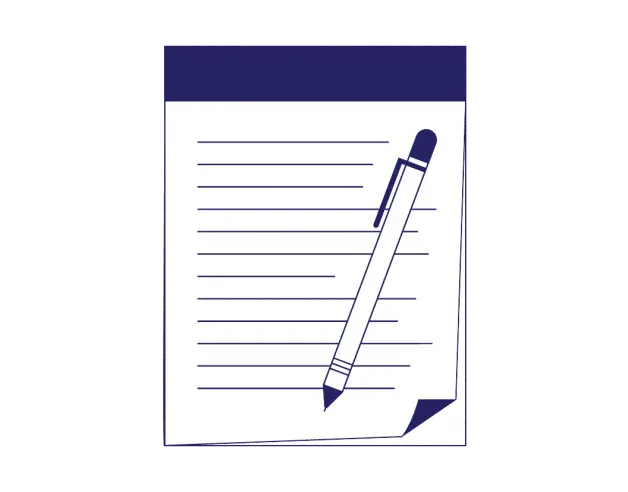
- 5-minute read
- 7th December 2022
Writing English papers and essays can be challenging at first, but with the right tools, knowledge, and resources, you can improve your writing skills. In this article, you’ll get some tips and tricks on how to write a top-graded essay in English.
Have you heard the saying “practice makes perfect”? Well, it’s wrong. Practice does make improvement, though. Whether you’re taking an English composition class, studying for the IELTS or TOEFL , or preparing to study abroad, you can always find new ways to practice writing in English.
If you practice on a daily basis, you’ll be exercising the skills you know while challenging yourself to learn even more. There are many ways you can practice writing in English daily:
- Keep a daily journal.
- Write practice essays.
- Do creative writing exercises .
Read in English
The best way to improve your writing is to read English books, news articles, essays, and other media. By reading the writing of other authors (whether they’re native or non-native speakers), you’re exposing yourself to different writing styles and learning new vocabulary. Be sure to take notes when you’re reading so you can write down things you don’t know (e.g., new words or phrases) or sentences or phrases you like.
For example, maybe you need to write a paper related to climate change. By reading news articles or research papers on this topic, you can learn relevant vocabulary and knowledge you can use in your essay.
FluentU has a great article with a list of 20 classic books you can read in English for free.
Immerse Yourself in English
If you don’t live in an English-speaking country, you may be thinking, “How can I immerse myself in English?” There are many ways to overcome this challenge. The following strategies are especially useful if you plan to study or travel abroad:
- Follow YouTube channels that focus on learning English or that have English speakers.
- Use social media to follow English-speaking accounts you are interested in.
- Watch movies and TV shows in English or use English subtitles when watching your favorite shows.
- Participate in your English club or salon at school to get more practice.
- Become an English tutor at a local school (teaching others is the best way to learn).
By constantly exposing yourself to English, you will improve your writing and speaking skills.
Visit Your Writing Center
If you’re enrolled at a university, you most likely have a free writing center you can use if you need help with your assignments. If you don’t have a writing center, ask your teacher for help and for information on local resources.
Use Your Feedback
After you submit an English writing assignment, you should receive feedback from your teacher on how you did. Use this feedback to your advantage . If you haven’t been getting feedback on your writing, ask your teacher to explain what issues they are seeing in your writing and what you could do to improve.
Find this useful?
Subscribe to our newsletter and get writing tips from our editors straight to your inbox.
Be Aware of Your Common Writing Mistakes
If you review your feedback on writing assignments, you might notice some recurring mistakes you are making. Make a list of common mistakes you tend to make when writing, and use it when doing future assignments. Some common mistakes include the following:
- Grammar errors (e.g., not using articles).
- Incorrect vocabulary (e.g., confusing however and therefore ).
- Spelling mistakes (e.g., writing form when you mean from ).
- Missing essay components (e.g., not using a thesis statement in your introduction).
- Not using examples in your body paragraphs.
- Not writing an effective conclusion .
This is just a general list of writing mistakes, some of which you may make. But be sure to go through your writing feedback or talk with your teacher to make a list of your most common mistakes.
Use a Prewriting Strategy
So many students sit down to write an essay without a plan. They just start writing whatever comes to their mind. However, to write a top-graded essay in English, you must plan and brainstorm before you begin to write. Here are some strategies you can use during the prewriting stage:
- Freewriting
- Concept Mapping
For more detailed information on each of these processes, read “5 Useful Prewriting Strategies.”
Follow the Writing Process
All writers should follow a writing process. However, the writing process can vary depending on what you’re writing. For example, the process for a Ph.D. thesis is going to look different to that of a news article. Regardless, there are some basic steps that all writers should follow:
- Understanding the assignment, essay question, or writing topic.
- Planning, outlining, and prewriting.
- Writing a thesis statement.
- Writing your essay.
- Revising and editing.
For more information on how to write an essay in English, read “How To Construct an Excellent Essay in 5 Steps.”
Writing essays, theses, news articles, or papers in English can be challenging. They take a lot of work, practice, and persistence. However, with these tips, you will be on your way to writing top-graded English essays.
If you need more help with your English writing, the experts at Proofed will proofread your first 500 words for free!
Share this article:
Post A New Comment
Got content that needs a quick turnaround? Let us polish your work. Explore our editorial business services.
3-minute read
What Is a Content Editor?
Are you interested in learning more about the role of a content editor and the...
4-minute read
The Benefits of Using an Online Proofreading Service
Proofreading is important to ensure your writing is clear and concise for your readers. Whether...
2-minute read
6 Online AI Presentation Maker Tools
Creating presentations can be time-consuming and frustrating. Trying to construct a visually appealing and informative...
What Is Market Research?
No matter your industry, conducting market research helps you keep up to date with shifting...
8 Press Release Distribution Services for Your Business
In a world where you need to stand out, press releases are key to being...
How to Get a Patent
In the United States, the US Patent and Trademarks Office issues patents. In the United...

Make sure your writing is the best it can be with our expert English proofreading and editing.
British Council India
How to improve your English writing skills
By Rajul Goveas
31 august 2021 - 12:16pm.

by Rajul Goveas
Are you the kind of person who picks up a pen to write and has words on the tip of your tongue, but they refuse to come on to the paper? Or maybe they quickly fall on to the paper, show up on your screen, but you don’t want to show anyone your writing? Don’t panic. Even the best writers get writer’s block or have had their work rejected many times.
Writing requires vocabulary, grammar, spelling, punctuation, structure and, most importantly, ideas.
But the first step is a simple one: Just sit down and get started.
In this post, we’ll look at some general tips to help you improve your writing, whatever you want to write. Then we’ll focus on some specific areas to help you get better at different types of writing.
These areas are:
- Email and letter writing
- Creative writing
- Paragraph writing
- Cohesion in writing
I’ll also share some useful links for some more practice below, so don’t forget to check those out too.
Why should you write? There are many reasons to write: Maybe you need to write emails or letters in English for work or business. You might be a creative person wanting to write stories in English or content for an advertisement. Perhaps you are a script writer wanting to write dialogues in English. Maybe you have an English exam coming up, such as IELTS, and want to get a high band score with that perfect essay.
On top of all this, you can also write for fun! Write because you like to use the words you know and see them on the screen or on paper. Writing for fun is also a great way to build your confidence and ability.
Tips for improving your all-round writing skills
There are some good ways to improve your all-round writing skills, whatever you want to write:
- To write well, read a lot and read different things e.g. storybooks, newspapers, magazines. As you read, notice the words, their spellings, ideas in the writing and the message they are trying to convey. Try to use this in your own writing to build your range of expression.
- You can improve your writing by reading texts in the style you want to write in (emails, stories, scripts and adverts all have different structures and rules). Look beyond the text and try to understand how they are structured – are headings used? How are paragraphs written? What kind of language is used?
- Some people like to keep a diary. Do you keep one? Try making some notes in it often. This means you will get into the habit of writing which will help you improve.
- Try expressing yourself when you message using words instead of using emojis. This will help you build vocabulary.
- Remember what you heard in the news, or on TV talks etc. and recreate it in your own words. This will help you build your information-giving and storytelling skills.
- Be creative. Rewrite fight scenes into romantic or comedy scenes to enjoy your writing. Share with your friends to have a good laugh. Creativity is good to help you generate ideas and make your writing interesting.
- Plan your writing and check what you have written after completing it. Read it as if you are the intended reader and not the writer. Will your reader understand everything?
I mproving your writing approach
It’s a good idea to follow the same approach whenever you write, whatever you are writing.
Well, here’s one simple and POWER ful technique:
POWER writing
Watch this video for some more great tips to help you improve your writing skills.
Improving specific writing skills
Now let’s look at how you can improve specific areas of your writing. We’ll cover:
Tips for emails or letter writing in English
Do you write emails and or letters? If the answer is yes, here are some easy to remember tips.
(Do note, there are many similarities between emails and letter; so, let’s put the two together and call it email writing as there are more emails written these days than letters.)
- Write with the reader in mind – what message do you want to get across?
- Write in an active voice instead of passive voice, this makes your message clear.
- Avoid jargon to help your reader understand fully.
- Develop a personal, warm tone – personal emails are usually informal and business emails are usually formal or semi-formal.
- Avoid long sentences as these can be difficult to read.
- Use short paragraphs so you reader can follow easily.
- Write to the point and avoid unnecessary information.
Look at this email between colleagues. Notice the tips from above in action.
From : Sonika Gomez To : Simran Raj Subject : Request for new price list for Golden Glow face creams
Dear Simran,
We are presenting to some new clients next Monday 10 December and they are interested in our Golden Glow face creams.
I understand from Anya that the prices have changed recently. She mentioned that you have the new price list. Do you think you could email it to me?
I would be grateful if we could have it by close of business on Thursday 6 December. That would give us time to prepare for our presentation.
Thanks very much for your help.
Best regards,
Finally, there are a couple of important things you need to remember; email etiquette and the ‘KISS’ rule.
Email etiquette means you choose the right approach and level of formality. Semi-formal or formal emails, for example, use the correct salutation and sign off and usually avoid using contractions (I’d, we’re, you’ll etc.)
Learn more about email etiquette here .
The KISS rule is: K eep I t S hort & S imple – your reader will thank you!
Tips for creative writing
Let’s turn our thoughts to some fun writing; story writing in English, or creative writing. Are you curious as to what I am going to say here? Good! Then you are on the right track as creative writers should always be curious. Why? Because that’s where you will get your ideas from.
Look around you for inspiration, your family and personal experiences are great sources for interesting stories. The ordinary or the extraordinary events and people you have experienced lend colour to your life, don’t they?
Think of other stories from movies or plays you have seen. Are there ideas from there you can borrow?
- Think of stories that have different emotions. Step back into the past and think of your time in school, the friends you made and lost, your best friends in college and the ones you were so jealous of. Then the lovely warm moments, like being at home with wonderful grandparents you wished would live forever.
Turn your inspiration into a story. Think of the setting or backdrop of your story. All the people become the characters and all the emotions help you develop the narrative.
Develop your vocabulary, especially nouns, verbs and adjectives that will help you describe things and vary your language.
Are you starting out as a story writer? You can find some great beginner tips here .
Do you want to build your vocabulary to help your describe things? Start here with an activity on describing appearance.
Tips for paragraph writing
Why do we need paragraphs? Because they help the reader progress through your writing and understand your ideas. It is a good idea to write a new idea in each new paragraph. You can follow a basic paragraph structure to help you write clearly and logically.
Note that is normal to leave a line between each paragraph to clearly mark the division.
Look at this example to see good paragraphing in action:
My last holiday was a 3-week trip to Cairns in North Queensland, Australia. I know Cairns well because I lived there when I was at university, more than fifteen years ago.
Instead of staying in a hotel, I stayed with two of my old friends in their lovely spacious home. It was so much fun, and a little bit like my old life. I wanted to do all the same things I did in my university days, so I visited all the familiar places and mainly the university. It has changed, is a lot bigger and looks more modern. I also cycled down to the supermarket near my old house. I loved seeing all the different foods. I was really happy to find my favourite Woodside cheese and double coated chocolate Tim Tam biscuits, but they were a bit more expensive than I remember!
- Each paragraph has one central idea.
- There is a topic sentence which tells you what the paragraph is about. This is usually the first sentence in the paragraph.
- Add a few more sentences to give a supporting point or develop the idea written about in the topic sentence.
- The last sentence in each paragraph sums up the main idea of the paragraph and it can also link to the next paragraph.
To find out more about writing about a holiday like the example above visit this site .
Tips for cohesion in writing
Cohesion is the use of various cohesive devices to link individual sentences and ideas. This is required to make our ideas flow naturally and help the reader follow what we are saying.
Look at this paragraph and notice how the underlined words and phrases link the text together:
It is true that these days everything you want to know is a few clicks away as long as you have internet access. However, not everyone has working internet all the time, for example in certain buildings or remote locations, so we do need to be able to remember information. Moreover, it takes time to look up everything you need to know online, whereas remembering something is immediate. The human memory is a much more efficient system.
Here are some ideas to help you link your text:
- Use linking words, devices and expressions (although, in addition, what’s more etc.) to link different parts of text.
- Use signposting words like firstly, secondly, and finally.
- Use pronouns to refer to things mentioned before or after (I went out with Jo on Sunday. She looked awful).
- Organise or list your points (see how I use bullet points?)
- Use examples to support your point
- State contrasting ideas (on the other hand, however etc.)
- Write about consequences if any (as a result, due to this etc.)
Find out more about linking words here and here .
Are you ready to write? Get started now!
- Best ways to improve your English speaking skills
Main navigation
Write & improve.

Improve your English writing online
Want to improve your writing skills? Our free online tool helps you to practise your writing and get valuable feedback instantly. Write & Improve is simple to use: just choose a task, write or upload a written response and use the feedback to quickly improve.
It shows you how to improve your spelling, grammar and vocabulary. Join over 2 million learners of English who have used Write & Improve to improve their writing.
Start practising now
Improve your writing now – it's free!
- There is no limit on how many times you can use the tool – keep practising as much as you need to and build your confidence.
- Encourages you to think about what to improve.
- Keep improving and see your progress.
When I was preparing for my B2 First exam I practised really hard and I succeeded, so I'm in love with this tool that I still use almost every day. Aaron from Ecuador

With Write & Improve my grades get better and I am inspired to do more. It is really graphical and easy to use, highlighting your mistakes in a very visual way. Victoria from Uruguay

Write & Improve helps when practising writing particular types of documents. I've been able to see my progress and how my learning has changed. Jorge from Switzerland

Have a language expert improve your writing
Run a free plagiarism check in 10 minutes, generate accurate citations for free.
- Knowledge Base
- Example of a great essay | Explanations, tips & tricks
Example of a Great Essay | Explanations, Tips & Tricks
Published on February 9, 2015 by Shane Bryson . Revised on July 23, 2023 by Shona McCombes.
This example guides you through the structure of an essay. It shows how to build an effective introduction , focused paragraphs , clear transitions between ideas, and a strong conclusion .
Each paragraph addresses a single central point, introduced by a topic sentence , and each point is directly related to the thesis statement .
As you read, hover over the highlighted parts to learn what they do and why they work.
Instantly correct all language mistakes in your text
Upload your document to correct all your mistakes in minutes

Table of contents
Other interesting articles, frequently asked questions about writing an essay, an appeal to the senses: the development of the braille system in nineteenth-century france.
The invention of Braille was a major turning point in the history of disability. The writing system of raised dots used by visually impaired people was developed by Louis Braille in nineteenth-century France. In a society that did not value disabled people in general, blindness was particularly stigmatized, and lack of access to reading and writing was a significant barrier to social participation. The idea of tactile reading was not entirely new, but existing methods based on sighted systems were difficult to learn and use. As the first writing system designed for blind people’s needs, Braille was a groundbreaking new accessibility tool. It not only provided practical benefits, but also helped change the cultural status of blindness. This essay begins by discussing the situation of blind people in nineteenth-century Europe. It then describes the invention of Braille and the gradual process of its acceptance within blind education. Subsequently, it explores the wide-ranging effects of this invention on blind people’s social and cultural lives.
Lack of access to reading and writing put blind people at a serious disadvantage in nineteenth-century society. Text was one of the primary methods through which people engaged with culture, communicated with others, and accessed information; without a well-developed reading system that did not rely on sight, blind people were excluded from social participation (Weygand, 2009). While disabled people in general suffered from discrimination, blindness was widely viewed as the worst disability, and it was commonly believed that blind people were incapable of pursuing a profession or improving themselves through culture (Weygand, 2009). This demonstrates the importance of reading and writing to social status at the time: without access to text, it was considered impossible to fully participate in society. Blind people were excluded from the sighted world, but also entirely dependent on sighted people for information and education.
In France, debates about how to deal with disability led to the adoption of different strategies over time. While people with temporary difficulties were able to access public welfare, the most common response to people with long-term disabilities, such as hearing or vision loss, was to group them together in institutions (Tombs, 1996). At first, a joint institute for the blind and deaf was created, and although the partnership was motivated more by financial considerations than by the well-being of the residents, the institute aimed to help people develop skills valuable to society (Weygand, 2009). Eventually blind institutions were separated from deaf institutions, and the focus shifted towards education of the blind, as was the case for the Royal Institute for Blind Youth, which Louis Braille attended (Jimenez et al, 2009). The growing acknowledgement of the uniqueness of different disabilities led to more targeted education strategies, fostering an environment in which the benefits of a specifically blind education could be more widely recognized.
Several different systems of tactile reading can be seen as forerunners to the method Louis Braille developed, but these systems were all developed based on the sighted system. The Royal Institute for Blind Youth in Paris taught the students to read embossed roman letters, a method created by the school’s founder, Valentin Hauy (Jimenez et al., 2009). Reading this way proved to be a rather arduous task, as the letters were difficult to distinguish by touch. The embossed letter method was based on the reading system of sighted people, with minimal adaptation for those with vision loss. As a result, this method did not gain significant success among blind students.
Louis Braille was bound to be influenced by his school’s founder, but the most influential pre-Braille tactile reading system was Charles Barbier’s night writing. A soldier in Napoleon’s army, Barbier developed a system in 1819 that used 12 dots with a five line musical staff (Kersten, 1997). His intention was to develop a system that would allow the military to communicate at night without the need for light (Herron, 2009). The code developed by Barbier was phonetic (Jimenez et al., 2009); in other words, the code was designed for sighted people and was based on the sounds of words, not on an actual alphabet. Barbier discovered that variants of raised dots within a square were the easiest method of reading by touch (Jimenez et al., 2009). This system proved effective for the transmission of short messages between military personnel, but the symbols were too large for the fingertip, greatly reducing the speed at which a message could be read (Herron, 2009). For this reason, it was unsuitable for daily use and was not widely adopted in the blind community.
Nevertheless, Barbier’s military dot system was more efficient than Hauy’s embossed letters, and it provided the framework within which Louis Braille developed his method. Barbier’s system, with its dashes and dots, could form over 4000 combinations (Jimenez et al., 2009). Compared to the 26 letters of the Latin alphabet, this was an absurdly high number. Braille kept the raised dot form, but developed a more manageable system that would reflect the sighted alphabet. He replaced Barbier’s dashes and dots with just six dots in a rectangular configuration (Jimenez et al., 2009). The result was that the blind population in France had a tactile reading system using dots (like Barbier’s) that was based on the structure of the sighted alphabet (like Hauy’s); crucially, this system was the first developed specifically for the purposes of the blind.
While the Braille system gained immediate popularity with the blind students at the Institute in Paris, it had to gain acceptance among the sighted before its adoption throughout France. This support was necessary because sighted teachers and leaders had ultimate control over the propagation of Braille resources. Many of the teachers at the Royal Institute for Blind Youth resisted learning Braille’s system because they found the tactile method of reading difficult to learn (Bullock & Galst, 2009). This resistance was symptomatic of the prevalent attitude that the blind population had to adapt to the sighted world rather than develop their own tools and methods. Over time, however, with the increasing impetus to make social contribution possible for all, teachers began to appreciate the usefulness of Braille’s system (Bullock & Galst, 2009), realizing that access to reading could help improve the productivity and integration of people with vision loss. It took approximately 30 years, but the French government eventually approved the Braille system, and it was established throughout the country (Bullock & Galst, 2009).
Although Blind people remained marginalized throughout the nineteenth century, the Braille system granted them growing opportunities for social participation. Most obviously, Braille allowed people with vision loss to read the same alphabet used by sighted people (Bullock & Galst, 2009), allowing them to participate in certain cultural experiences previously unavailable to them. Written works, such as books and poetry, had previously been inaccessible to the blind population without the aid of a reader, limiting their autonomy. As books began to be distributed in Braille, this barrier was reduced, enabling people with vision loss to access information autonomously. The closing of the gap between the abilities of blind and the sighted contributed to a gradual shift in blind people’s status, lessening the cultural perception of the blind as essentially different and facilitating greater social integration.
The Braille system also had important cultural effects beyond the sphere of written culture. Its invention later led to the development of a music notation system for the blind, although Louis Braille did not develop this system himself (Jimenez, et al., 2009). This development helped remove a cultural obstacle that had been introduced by the popularization of written musical notation in the early 1500s. While music had previously been an arena in which the blind could participate on equal footing, the transition from memory-based performance to notation-based performance meant that blind musicians were no longer able to compete with sighted musicians (Kersten, 1997). As a result, a tactile musical notation system became necessary for professional equality between blind and sighted musicians (Kersten, 1997).
Braille paved the way for dramatic cultural changes in the way blind people were treated and the opportunities available to them. Louis Braille’s innovation was to reimagine existing reading systems from a blind perspective, and the success of this invention required sighted teachers to adapt to their students’ reality instead of the other way around. In this sense, Braille helped drive broader social changes in the status of blindness. New accessibility tools provide practical advantages to those who need them, but they can also change the perspectives and attitudes of those who do not.
Bullock, J. D., & Galst, J. M. (2009). The Story of Louis Braille. Archives of Ophthalmology , 127(11), 1532. https://doi.org/10.1001/archophthalmol.2009.286.
Herron, M. (2009, May 6). Blind visionary. Retrieved from https://eandt.theiet.org/content/articles/2009/05/blind-visionary/.
Jiménez, J., Olea, J., Torres, J., Alonso, I., Harder, D., & Fischer, K. (2009). Biography of Louis Braille and Invention of the Braille Alphabet. Survey of Ophthalmology , 54(1), 142–149. https://doi.org/10.1016/j.survophthal.2008.10.006.
Kersten, F.G. (1997). The history and development of Braille music methodology. The Bulletin of Historical Research in Music Education , 18(2). Retrieved from https://www.jstor.org/stable/40214926.
Mellor, C.M. (2006). Louis Braille: A touch of genius . Boston: National Braille Press.
Tombs, R. (1996). France: 1814-1914 . London: Pearson Education Ltd.
Weygand, Z. (2009). The blind in French society from the Middle Ages to the century of Louis Braille . Stanford: Stanford University Press.
If you want to know more about AI tools , college essays , or fallacies make sure to check out some of our other articles with explanations and examples or go directly to our tools!
- Ad hominem fallacy
- Post hoc fallacy
- Appeal to authority fallacy
- False cause fallacy
- Sunk cost fallacy
College essays
- Choosing Essay Topic
- Write a College Essay
- Write a Diversity Essay
- College Essay Format & Structure
- Comparing and Contrasting in an Essay
(AI) Tools
- Grammar Checker
- Paraphrasing Tool
- Text Summarizer
- AI Detector
- Plagiarism Checker
- Citation Generator
Prevent plagiarism. Run a free check.
An essay is a focused piece of writing that explains, argues, describes, or narrates.
In high school, you may have to write many different types of essays to develop your writing skills.
Academic essays at college level are usually argumentative : you develop a clear thesis about your topic and make a case for your position using evidence, analysis and interpretation.
The structure of an essay is divided into an introduction that presents your topic and thesis statement , a body containing your in-depth analysis and arguments, and a conclusion wrapping up your ideas.
The structure of the body is flexible, but you should always spend some time thinking about how you can organize your essay to best serve your ideas.
Your essay introduction should include three main things, in this order:
- An opening hook to catch the reader’s attention.
- Relevant background information that the reader needs to know.
- A thesis statement that presents your main point or argument.
The length of each part depends on the length and complexity of your essay .
A thesis statement is a sentence that sums up the central point of your paper or essay . Everything else you write should relate to this key idea.
A topic sentence is a sentence that expresses the main point of a paragraph . Everything else in the paragraph should relate to the topic sentence.
At college level, you must properly cite your sources in all essays , research papers , and other academic texts (except exams and in-class exercises).
Add a citation whenever you quote , paraphrase , or summarize information or ideas from a source. You should also give full source details in a bibliography or reference list at the end of your text.
The exact format of your citations depends on which citation style you are instructed to use. The most common styles are APA , MLA , and Chicago .
Cite this Scribbr article
If you want to cite this source, you can copy and paste the citation or click the “Cite this Scribbr article” button to automatically add the citation to our free Citation Generator.
Bryson, S. (2023, July 23). Example of a Great Essay | Explanations, Tips & Tricks. Scribbr. Retrieved April 2, 2024, from https://www.scribbr.com/academic-essay/example-essay-structure/
Is this article helpful?
Shane Bryson
Shane finished his master's degree in English literature in 2013 and has been working as a writing tutor and editor since 2009. He began proofreading and editing essays with Scribbr in early summer, 2014.
Other students also liked
How to write an essay introduction | 4 steps & examples, academic paragraph structure | step-by-step guide & examples, how to write topic sentences | 4 steps, examples & purpose, unlimited academic ai-proofreading.
✔ Document error-free in 5minutes ✔ Unlimited document corrections ✔ Specialized in correcting academic texts

Essay Writing Skills & Techniques
Many of our articles and guides frequently refer to essay writing, so to simplify this, we have collated our best essay writing skills and techniques into one section to assist students and teachers in learning the fundamentals of writing a wide variety of essays, learning the essential elements of all essays and even provide some activities and resource to help you along the way.
WHAT IS AN ESSAY?
Defining an essay is challenging as it crosses many genres and elements of writing. Still, in simple terms, an essay is a piece of writing allowing the author to state an argument, justify their position on a topic, express their emotions, and interpret information, facts and procedures.
The term essay comes from the Latin word ‘exagium’, meaning the presentation of a case or, as we may more commonly say “stating your case.” When writing a high-quality essay, it should be considered your definitive opportunity to have your say on something of meaning and purpose to you so make every word count by following our step-by-step guides below.
ESSAY WRITING SKILLS

How to Start an Essay with Strong Hooks and Leads

Top 5 Essay Writing Tips
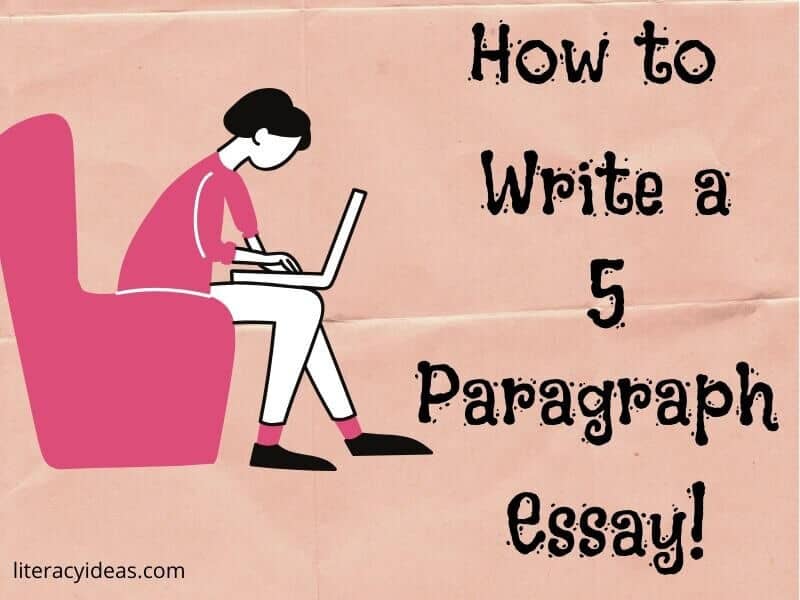
How to write a perfect 5 Paragraph Essay
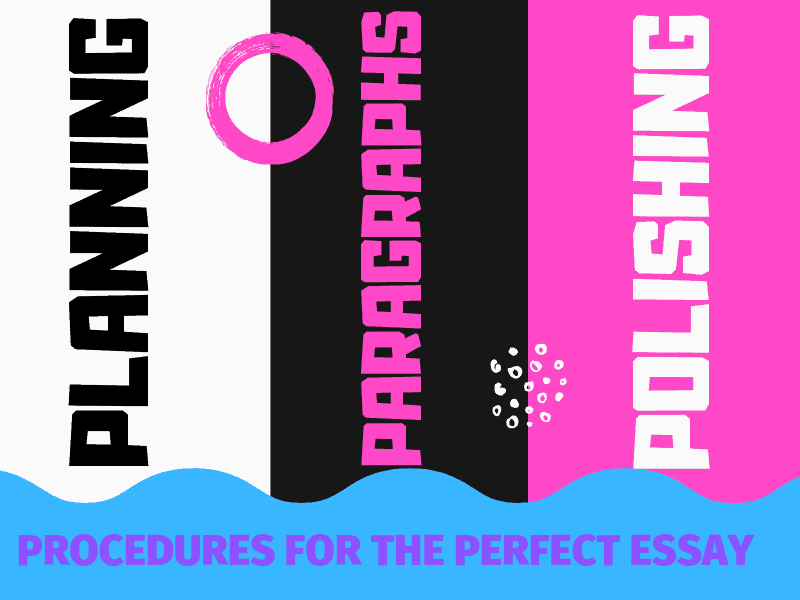
Essay Writing: A complete guide for students and teachers
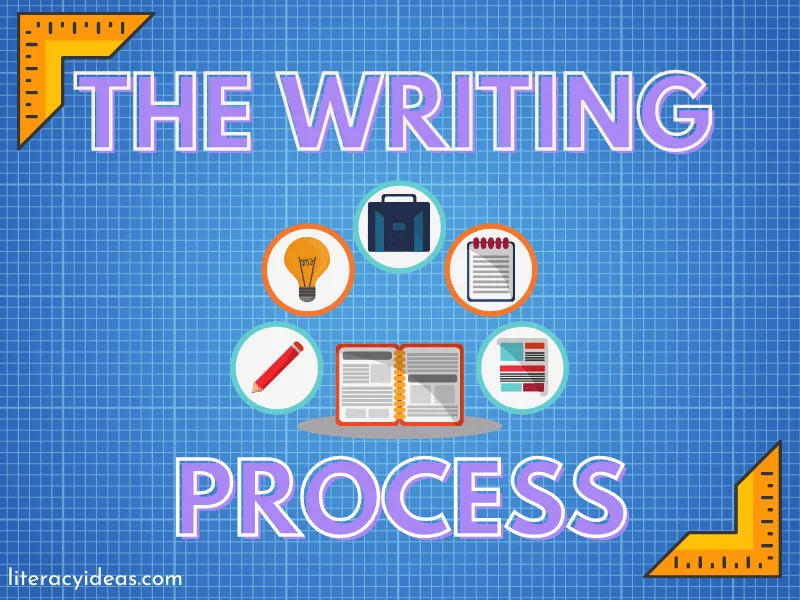
The Writing Process

How to write a Conclusion

Top Research strategies for Students
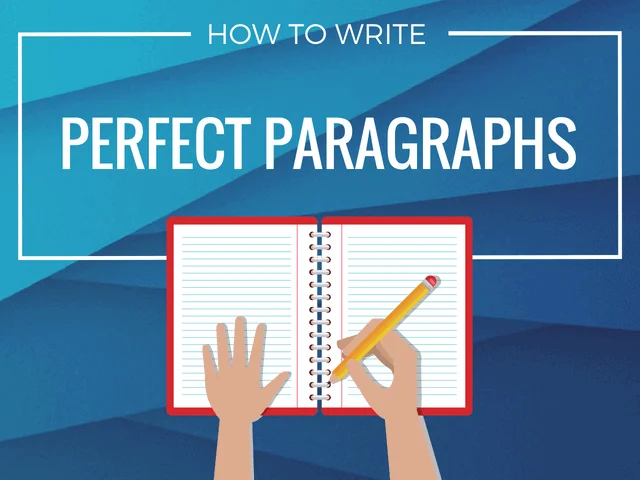
Perfect Paragraph Writing: The Ultimate Guide
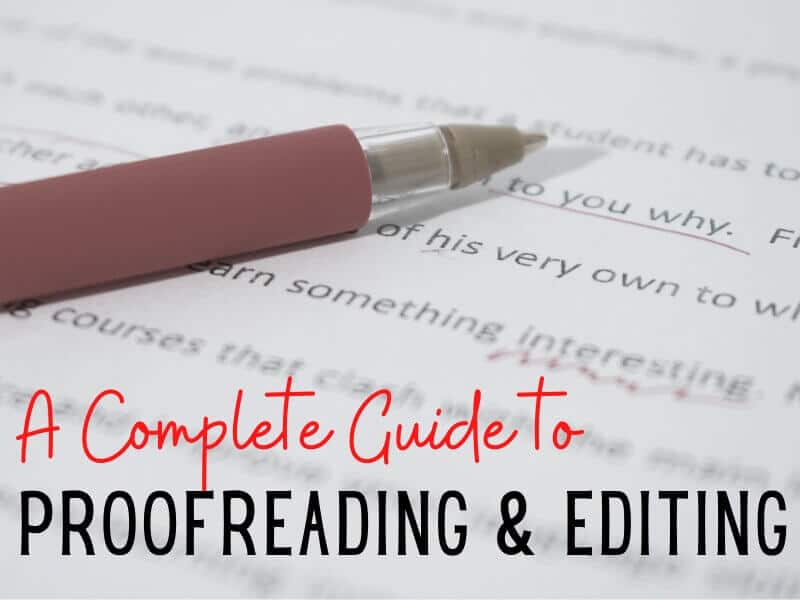
Teaching Proofreading and Editing Skills
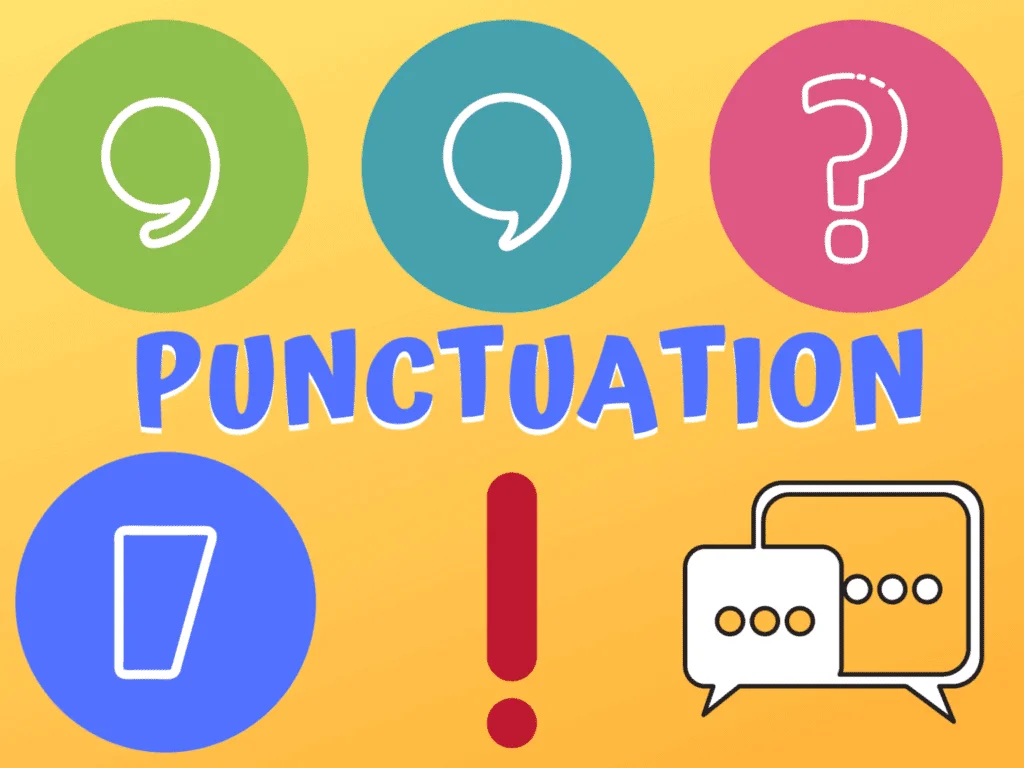
Punctuation rules for students and teachers: A complete guide

Teaching Fact and Opinion

Point of view in literacy: A guide for students and teachers
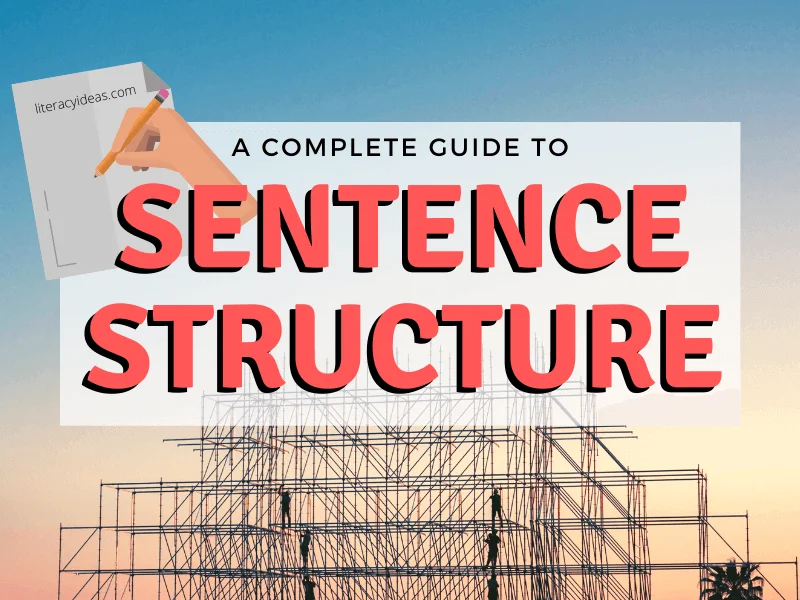
Sentence Structure: A Complete Guide (With Examples & Tasks)
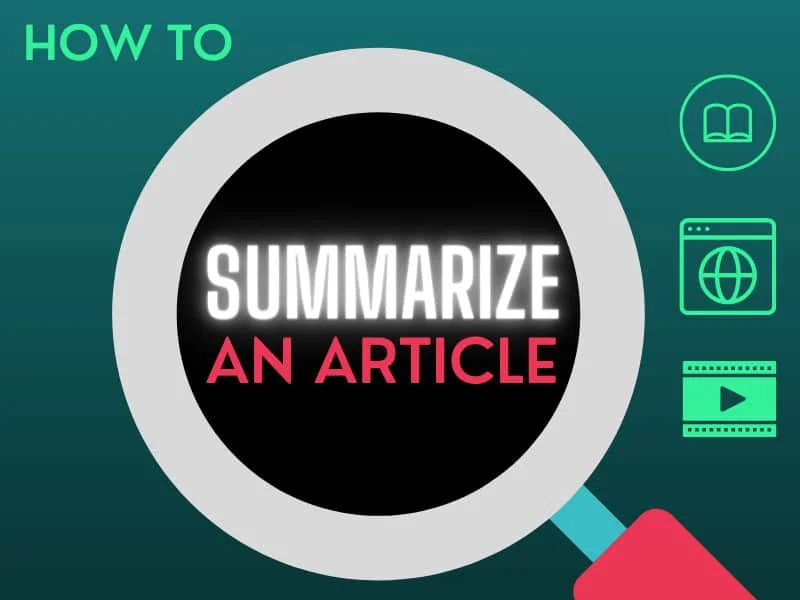
How to Summarize an Article

HOW TO WRITE A HYPOTHESIS
Guides for specific essay types.

How To Write a My Best Friend Essay
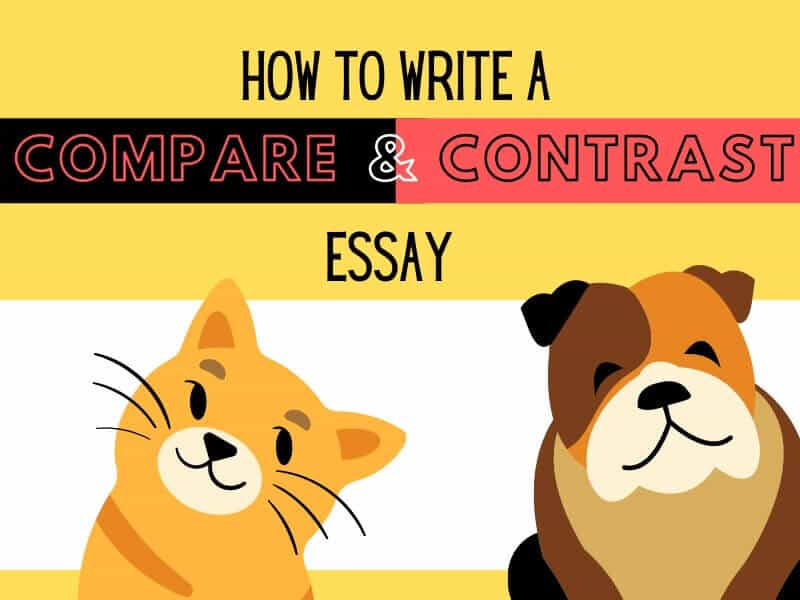
How to Write a Compare and Contrast Essay
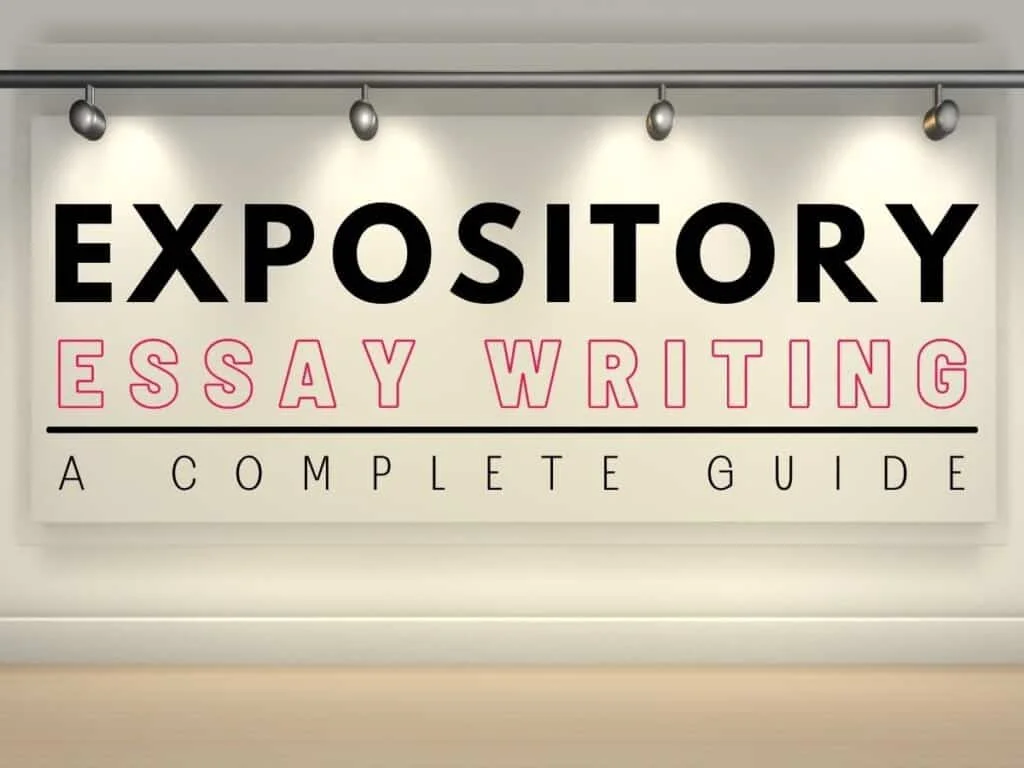
How to Write Excellent Expository Essays

How to write an Argumentative Essay
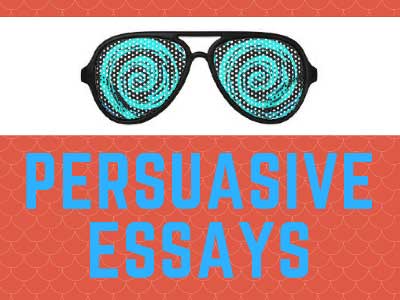
How to Write Perfect Persuasive Essays in 5 Simple Steps

How to Write a Novel Study: A Complete Guide for Students & Teachers
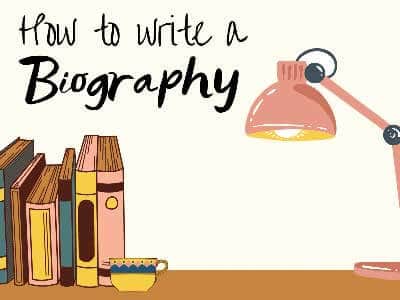
How to Write a Biography
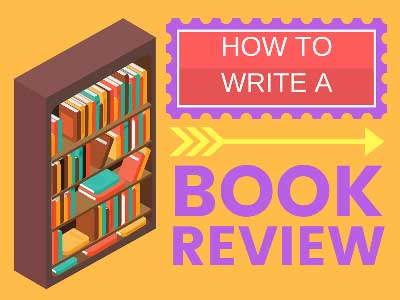
How to Write a Book Review: The Ultimate Guide
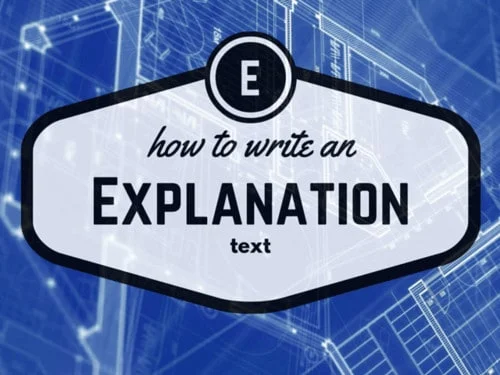
How to Write an Excellent Explanation Text
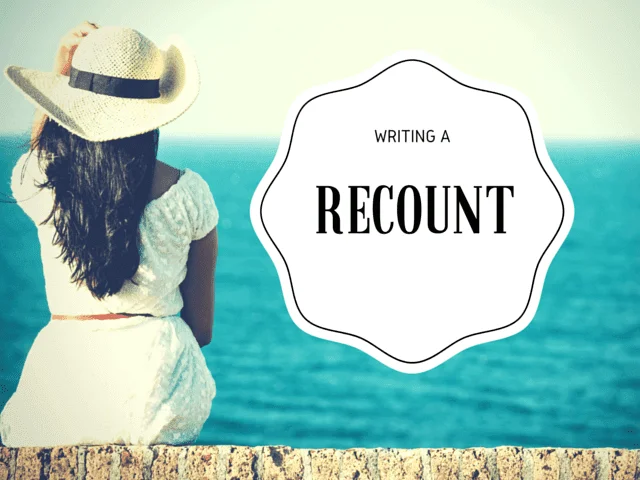
How to Write a Recount Text (And Improve your Writing Skills)
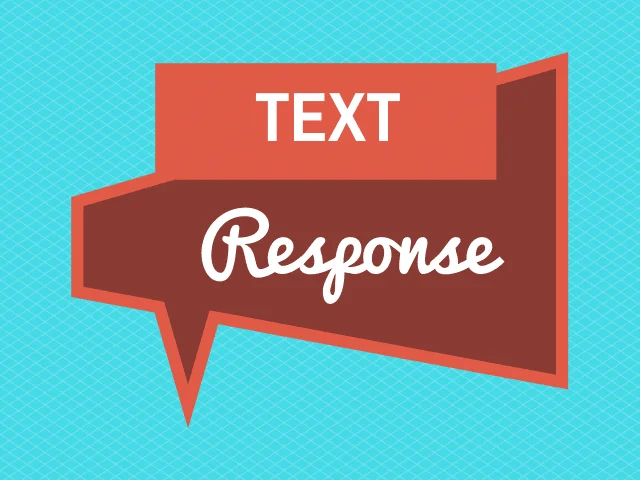
How to write a text response


Narrative Writing: A Complete Guide for Teachers and Students

How to write excellent Procedural Texts

How to Write an Excellent Information Report
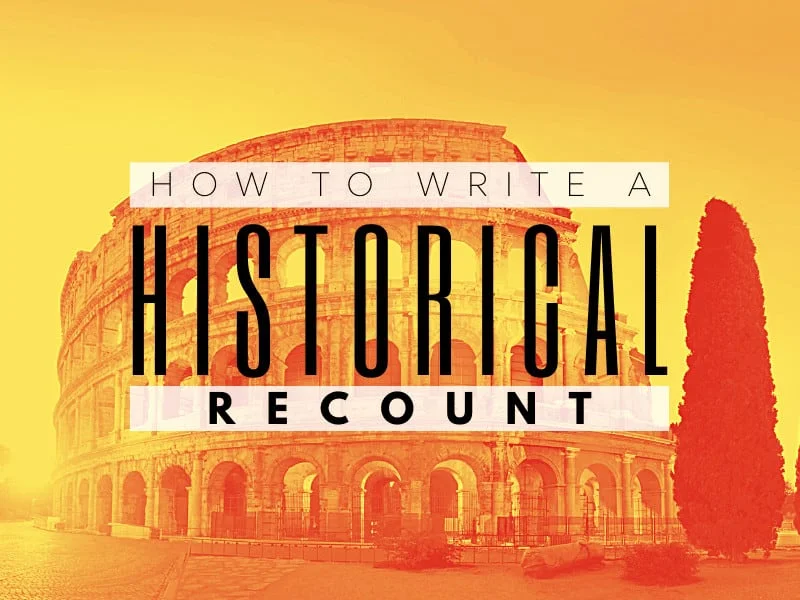
How to Write a Historical Recount Text
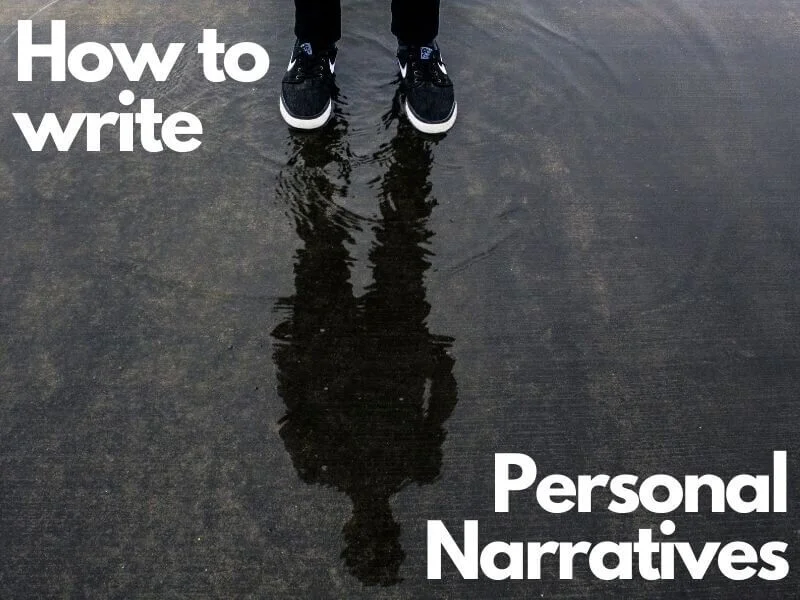
Personal Narrative Writing Guide
Teaching resources and lessons to support essay writing.

Top 25 Essay Topics for 2024

Glossary of literary terms
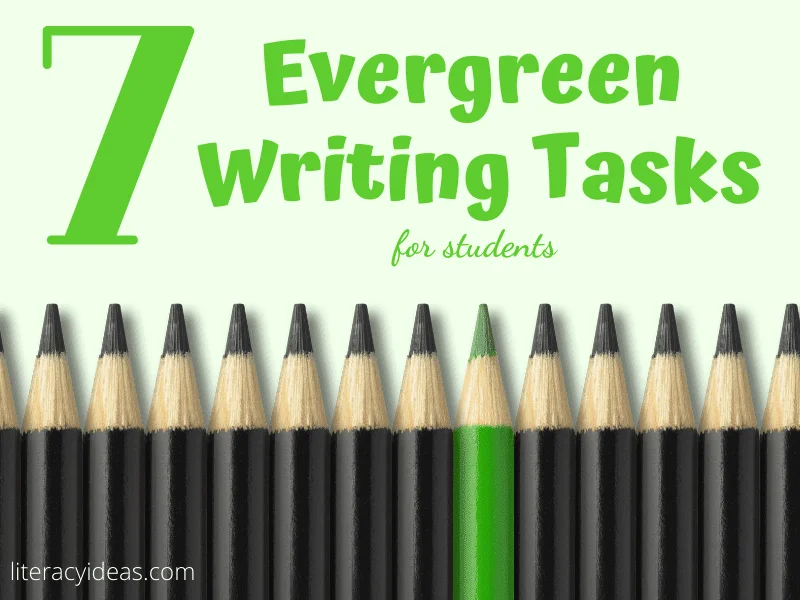
7 Evergreen Writing Activities for Elementary Students

The Author’s Purpose for students and teachers
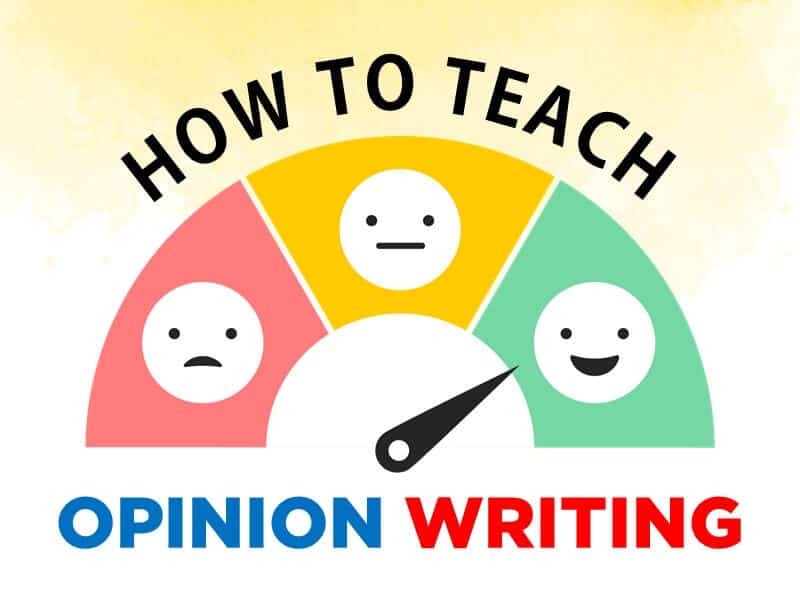
The Ultimate Guide to Opinion Writing for Students and Teachers

Top 7 High School Writing Skills for Students and Teachers
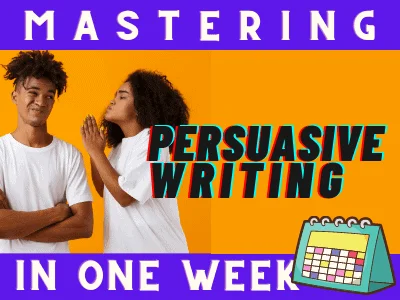
5 Top Persuasive Writing Lesson Plans for Students and Teachers

Explanation Texts: Top 5 Writing tips for younger students
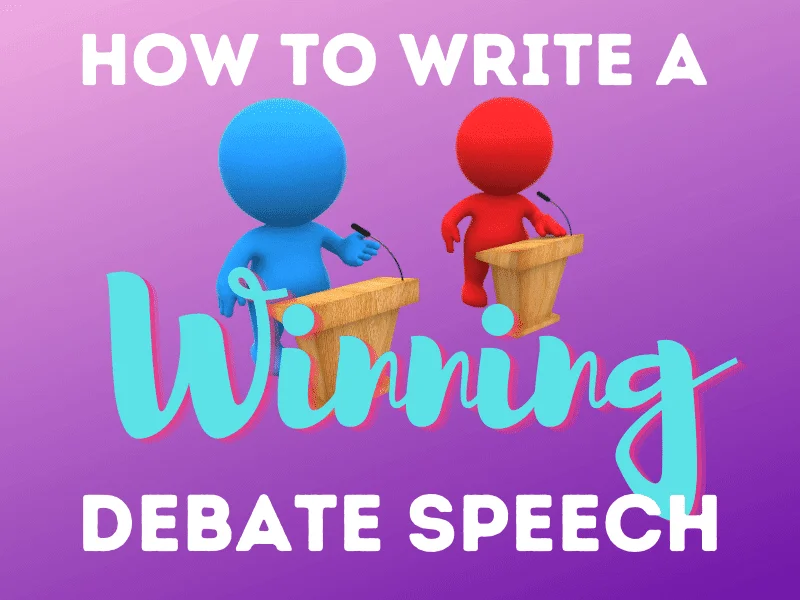
How to Write a Winning Debate Speech
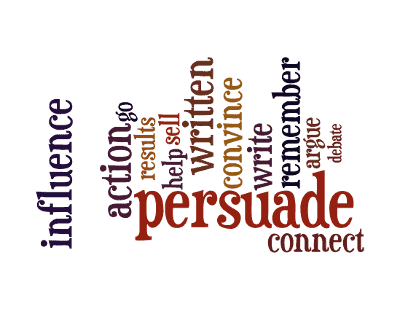
23 Persuasive writing Topics for High School students
Don’t forget that we have loads of essay writing prompts and loads of essay resources and tools you can download today and use with your students.
Writing Skills: How to Write an Essay in English
Struggling with another English essay? Inside, find a basic structure that will help you make the essay writing process easier and turn in a remarkable essay.
Determine the Purpose of Your Essay and Stick to It
Brainstorm ideas, develop a thesis statement, create an outline, start writing, edit and proofread, the bottom line.

For many beginning English learners writing a whole essay in English can turn out to be a challenge. It’s no wonder why – English students often face a lot of difficulties because there are so many grammar rules and stylistic nuances that it can be daunting for even the most determined students.
However, essays are an integral part of the education system. Essays allow teachers to evaluate your critical thinking and written communication skills. You’ll also need good essay writing skills if you want to apply for universities in English-speaking countries.
The great news is that, with a little hard work and determination, anyone can become a proficient English writer. In this article, we'll discuss some tips that will boost your writing skills and help you ease the essay writing process. Keep reading and learn how to start writing remarkable essays in English!
Discover how to learn words 3x faster
Learn English with Langster
There are many different types of essays, and each one requires a different writing approach. Some essays, such as persuasive essays , require a lot of research to form well thought-out arguments. Others, such as personal narratives , are more informal and may not require as much additional research.
If you're assigned a research paper , you'll need to use more factual evidence to support your claims. Admissions essays , in turn, require you to present yourself to the admissions committee and demonstrate why you're a good fit for their school.
In an expository essay you explain or define a concept, while in a descriptive essay you'll describe something in great detail.
Understanding the purpose of your essay will help you determine what kind of information to include and how best to organize it. No matter what type of essay you're writing, it's important to determine the purpose early on and stick to it . Keep in mind that trying to accomplish too many things in one essay will only confuse and frustrate your reader.
When you want to write an essay, one of the most important steps is brainstorming . This is when you sit down and come up with ideas for your essay.
Here’s a few questions to get your brainstorming session started. What am I trying to say with my essay? What points do I want to make? What examples can I use to support my claims?
Simply jot down all of your ideas on the topic, and then look for common themes and patterns. By taking the time to think about your essay before you start writing, you'll save yourself a lot of time and frustration later on.

Once you have a general idea of what you want to write about, it's time to develop a thesis statement . This is a short, concise sentence that states the central point of your essay. It should be specific and direct, without being too narrow or broad.
Some things to keep in mind to help you develop a clear thesis statement:
- Make sure it is directly relevant to the prompt or question.
- Be as specific as possible.
- Browse sample essays to get a better idea of how yours should look like.
- Don't be afraid to revise your thesis statement as you write!
For example, if you want to explore the theme of justice in the play Antigone , a good thesis statement might be:
- In the play Antigone, Sophocles uses irony to highlight the contradictions between what is morally right and what is legally right.
This thesis statement tells us that the essay will be about how Sophocles uses irony, and what that says about the literature. It gives the reader a specific idea of what to expect, and it also helps to keep the writer focused on their essay’s main purpose.
After you've developed a thesis statement, it's time to create an outline . This will be a roadmap for your essay and help you keep your thoughts organized and on track. A good outline includes a main idea for each paragraph (usually expressed in a topic sentence), and supporting details.
To get started, simply list all of the ideas that you want to include in your essay. Then, look for any common themes or patterns. From there, you can start to develop a more specific outline.
To give you an example, here is a basic outline for a five-paragraph essay on the abovementioned play Antigone :
Introductory Paragraph:
- Brief summary of the play.
- Overview of your main argument.
Body Paragraphs:
- Paragraph 1: Sophocles uses irony to explore the theme of justice.
- Paragraph 2: The consequences of conflicts between morality and law.
- Paragraph 3: The role of family in Antigone's decision.
Conclusion Paragraph:
- Restate your thesis statement.
- Summarize your main points and arguments.
- Leave the reader with something to think about.
Remember, this is just a basic structure you can refer to. As you write your own essay, you may find that your ideas change or that the direction of the essay has shifted. That's okay! Just be sure to revise and adjust your outline as you go.

Now it's time to start writing your essay! Most people begin with an introduction paragraph where they present their topic and a thesis statement. If you’re struggling to write your thesis, it can also be helpful to start on a body paragraph. Experiment to find out what works for you. Be sure to use strong vocabulary and clear, concise sentence structure.
Avoid run-on sentences and stick to active voice whenever possible. Overusing passive voice is one of the most common mistakes when it comes to essay writing, as it unnecessarily complicates the text and makes it more challenging to get through. Also, avoid using first person pronouns (I, me, my, etc.) in formal academic essays.
When it comes to an overall paragraph structure, make sure that each paragraph focuses on one idea only. Keep in mind that the first sentence of each paragraph is a topic sentence . This means that you should express the main point of the paragraph in it.
Then, you can use transition words to connect sentences within a paragraph, present evidence and argument, and make the text more readable overall.
As you write, be sure to support your thesis statement and provide evidence from the source material. This could include quotes, examples, or simply referring back to specific scenes. Remember, your goal is to persuade your reader that your argument is valid. The more evidence you can provide, the stronger your argument will be.
This is especially important if you write an argumentative essay , as it should take a stance on an issue. Your goal is to make your argument as clear and easy to follow as possible to keep the reader's attention throughout the whole essay.
If you find yourself getting bogged down in the details, take a break and come back to it later. Writing essays can be taxing, but with a careful approach to word choice and a bit of creativity, you can turn a simple essay topic into something remarkable.
After you've finished writing your first draft, it's important to edit and proofread your work . A good essay is clear, well-organized, and free of spelling and grammatical errors. You’ll need to edit and make sure that your essay meets all of these requirements.
Here are a few simple steps that will help you proofread and edit your essay:
- Start by reading through your essay aloud. You can also print your essay out and mark errors with a pen. This will help you to catch any typos, grammatical errors, or punctuation mistakes .
- Read through your essay again to ensure your sentences are clear and concise and make any necessary changes. Use a Thesaurus to find better words to use in your essay.
- Have someone else read your essay and ask for feedback. They may be able to spot errors that you missed, provide feedback on the essay’s tone and your overall writing style, or give professional opinion on an explored subject.
Once you’ve checked your writing for errors, you’ll want to make sure you properly format your final draft.

One of the most important things of essay writing is to format your final draft correctly. This includes using the correct font, margins, and spacing. It's also important to be consistent with your formatting throughout the entire essay. Be sure to check the style guide of your assignment.
Some teachers will let you choose the font, and if they do it’s a good idea to stick with something simple and easy to read. Times New Roman or Arial are both good options for academic essays. Most teachers prefer 1-inch margins on all sides of the page. Spacing is typically double-spaced, with each new paragraph indented.
If you're not sure how to format your essay, check the style guide of the assignment. If you can’t find any info there, ask your teacher for guidance. They will be able to tell you exactly what they're expecting.
With these tips, you'll be well on your way to writing an excellent essay in English! Just remember to start early, stay focused, and be willing to revise your work. With a little effort, you'll be sure to turn in an essay that you can be proud of.

Writing a good essay in English isn't as difficult as it may seem. By brainstorming ideas, developing a thesis statement, and creating an outline, you'll be well on your way to success. Just be sure to edit and proofread your work before submitting it.
With a little bit of effort and some helpful tips, you can produce an essay that is clear, concise, and well-written. Make sure to follow these guidelines and you're sure to impress your teacher (and yourself) with your writing skills. With these tips and tricks, you can write all different kinds of essays in English.
While you may think that a good writing style is something one’s born with, we at Langster know that it’s just another skill you can successfully develop by practicing. So, keep writing and you’ll get there!

Ellis is a seasoned polyglot and one of the creative minds behind Langster Blog, where she shares effective language learning strategies and insights from her own journey mastering the four languages. Ellis strives to empower learners globally to embrace new languages with confidence and curiosity. Off the blog, she immerses herself in exploring diverse cultures through cinema and contemporary fiction, further fueling her passion for language and connection.
Learn with Langster

Learn More about the English Language Family

What Is the Easiest Language to Learn For English Speakers?

Most Important English Grammar Rules to Remember
More Langster
- Why Stories?
- For Educators
- French A1 Grammar
- French A2 Grammar
- German A1 Grammar
- German A2 Grammar
- Spanish Grammar
- English Grammar
100 Writing Practice Lessons & Exercises
by Joe Bunting | 50 comments
Want to become a better writer? Perhaps you want to write novels, or maybe you just want to get better grades in your essay writing assignments , or maybe you'd like to start a popular blog .
If you want to write better, you need practice. But what does a writing practice actually look like? In this post, I'm going to give you everything you need to kick off your writing practice and become a better writer faster.

What Is Writing Practice?
Writing practice is a method of becoming a better writer that usually involves reading lessons about the writing process, using writing prompts, doing creative writing exercises , or finishing writing pieces, like essays, short stories , novels , or books . The best writing practice is deliberate, timed, and involves feedback.
How Do You Practice Writing?
This was the question I had when I first started The Write Practice in 2011. I knew how to practice a sport and how to practice playing an instrument. But for some reason, even after studying it in college, I wasn't sure how to practice writing.
I set out to create the best writing practice I could. The Write Practice is the result.
I found that the best writing practice has three aspects:
Deliberate . Writing whatever you feel like may be cathartic, but it's not an effective way to become a better writer or build your writing skills. You'll get better faster by practicing a specific technique or aspect of the writing process each time you sit down to write.
This is why we have a new lesson about the writing process each day on The Write Practice, followed by a practice prompt at the end so you can put what you learned to use immediately.
Timed . It's no secret writers struggle with focus. There are just too many interesting distractions—Facebook, email, Kim Kardashian's Instagram feed (just kidding about that last one, sort of)—and writing is just too hard sometimes.
Setting a timer, even for just fifteen minutes, is an easy and effective way to stay focused on what's important.
This is why in our writing practice prompt at the end of each post we have a time limit, usually with a link to an online tool egg timer , so you can focus on deliberate practice without getting distracted.
Feedback . Getting feedback is one of the requirements to deliberately practice writing or any other craft. Feedback can look like listening to the reactions of your readers or asking for constructive criticism from editors and other writers.
This is why we ask you to post your writing practice after each lesson, so that you can get feedback from other writers in The Write Practice community. It's also why we set up The Write Practice Pro community , to provide critique groups for writers to get feedback on each finished piece of writing.

Our 100+ Best Creative Writing Practice Exercises and Lessons
Now that you know how we practice writing at The Write Practice, here are our best writing practice lessons to jumpstart your writing skills with some daily writing exercises, for beginner writers to even the most expert writers:
All-Time, Top 10 Writing Lessons and Exercises
These ten posts are our most viewed articles to boost your writing practice:
1. What is Plot? The 6 Elements of Plot and How to Use Them . Great stories use similar elements in wildly different ways to build page-turning stories. Click here to read what they are and learn how to start using them !
2. Top 100 Short Story Ideas . Here are over a hundred writing prompts in a variety of genres. If you need ideas for your next story, check this out!
3. How To Use Neither, Nor, Or, and Nor Correctly . Even good writers struggle figuring out when to use neither/nor and either/or. In this post, our copy-queen Liz Bureman settles the confusion once and for all. Click to continue to the writing exercise
4. Ten Secrets To Write Better Stories . How does Pixar manage to create such great stories, year after year? And how do you write a good story? In this post, I distill everything I've learned about how to write a good story into ten tips. Click to continue to the writing exercise
5. 35 Questions To Ask Your Characters From Marcel Proust . To get to know my characters better, I use a list of questions known as the Proust Questionnaire, made famous by French author, Marcel Proust. Click to continue to the writing exercise
6. How a Scene List Can Change Your Novel-Writing Life . Creating a scene list changed my novel-writing life, and doing the same will change yours too. Includes examples of the scene lists from famous authors. Click to continue to the writing exercise
7. Why You Need to be Using the Oxford Comma . Most people I've met have no idea what the Oxford comma is, but it's probably something that you have used frequently in your writing. Click to continue to the writing exercise
8. Six Surprising Ways to Write Better Interview Questions. The interview is the most-used tool in a journalist's bag. But that doesn't mean novelists, bloggers, and even students can't and don't interview people. Here's how to conduct a great interview. Click to continue to the writing exercise
9. Why You Should Try Writing in Second Person . You've probably used first person and third person point-of-view already. But what about second person? This post explains three reasons why you should try writing from this point-of-view. Click to continue to the writing exercise
10. The Secret to Show, Don't Tell . You've heard the classic writing rule, “Show. Don't Tell.” Every writing blog ever has talked about it, and for good reason. Showing, for some reason, is really difficult. Click to continue to the writing exercise.

12 Exercises and Lessons To Become a Better Writer
How do you become a better writer? These posts share our best advice:
- Want to Be a Better Writer? Cut These 7 Words
- What I Mean When I Say I Am A Writer
- How to Become a Writer: 3 Simple Steps
- 72% of Writers Struggle With THIS
- 7 Lies About Becoming a Writer That You Probably Believe
- 10 Questions to Find Your Unique Writing Voice
- The Best Writing Book I’ve Ever Read
- The Best Way to Become a Better Writer
- The Creative Writer’s Toolkit: 6 Tools You Can’t Write Without
- Should You Write More or Write Better: Quantity vs Quality
- How to Become a Better Writer in One, Simple Step
- 11 Writing Tips That Will Change Your Life
6 Lessons and Exercises from Great Writers
If you want to be a writer, learn from the great writers who have gone before you:
- 23 Essential Quotes from Ernest Hemingway About Writing
- 29 Quotes that Explain How to Become a Better Writer
- 10 Lessons Dr. Seuss Can Teach Writers
- 10 Writing Tips from Ursula Le Guin
- Once Upon a Time: Pixar Prompt
- All the Pretty Words: Writing In the Style of Cormac McCarthy
12 Genre and Format Specific Writing Lessons and Exercises
Here are our best writing lessons for specific types of writing, including essays, screenplays, memoir, short stories, children's books, and humor writing:
- Writing an Essay? Here Are 10 Effective Tips
- How To Write a Screenplay: The 5 Step Process
- How to Write a Great Memoir: a Complete Guide
- How to Write a Short Story from Start to Finish
- How to Write a Thriller Novel
- How to Write a Children's Book
- How to Write a Love Story
- How to Write a Coming of Age Story or Book
- How to Write an Adventure Book
- 5 Key Elements for Successful Short Stories
- 4 Tips to Write a Novel That Will Be Adapted Into a Movie
- Humor Writing for People Who Aren’t Funny
14 Characterization Lessons and Exercises
Good characters are the foundation of good fiction. Here are our best lessons to create better characters:
- Character Development: How to Create Characters Audiences Will Love
- Writing Villains: 9 Evil Examples of the Villain Archetype
- How NOT to Introduce a New Character
- The Strongest Form of Characterization
- The Most Important Character Archetype
- How Do You Build A Strong Character In Your Writing?
- 75+ Antihero Examples and How to Use Them
- How to Explore Your Characters’ Motivations
- 8 Tips for Naming Characters
- The Protagonist: How to Center Your Story
- Heroes vs. Anti-Heroes: Which Is Right For Your Story?
- The Weakest Form of Characterization
- How to Write With an Accent
- How To Create a Character Sketch Using Scrivener
15 Grammar Lessons and Exercises
I talk to so many writers, some of whom are published authors, who struggle with grammar. Here are our best writing lessons on grammar:
- Is It Okay To End A Sentence With A Preposition?
- Contractions List: When To Use and When To Avoid
- Good vs. Well
- Connotation vs. Denotation
- Per Se vs. Per Say
- When You SHOULD Use Passive Voice
- When Do You Use “Quotation Marks”
- Polysyndeton and Asyndeton: Definition and Examples
- The Case Against Twilight
- Affect Versus Effect
- Stop Saying “Literally”
- What Is a Comma Splice? And Why Do Editors Hate Them?
- Intra vs. Inter: Why No One Plays Intermural Sports
- Alright and Alot: Words That Are Not Words
- The Poor, Misunderstood Semicolon
4 Journalism Lessons and Exercises
Want to be a journalist? Or even use techniques from journalism to improve your novel, essay, or screenplay? Here are our best writing lessons on journalism:
- Six Ways to Ask Better Questions In Interviews
- How Should You Interview Someone? Over Email? In Person?
- What If They Don’t Want to Talk to You?
- Eleven Habits of a Highly Effective Interviewers
16 Plot and Structure Lessons and Exercises
Want to write a good story? Our top plot and structure lessons will help:
- The Ten Types of Story and How to Master Them
- Points of a Story: 6 Plot Points Every Story Needs
- How to Shape a Story: The 6 Arcs
- 7 Keys To Write the Perfect First Line of a Novel
- The Secret to Creating Conflict
- 4 Tips to Avoid Having Your Short Story Rejected by a Literary Magazine
- 7 Steps to Creating Suspense
- 5 Elements of Storytelling
- 3 Important Rules for Writing Endings
- A Writer’s Cheatsheet to Plot and Structure
- Overcoming the Monster
- How to Satisfy Your Reader With a Great Ending
- Pow! Boom! Ka-Pow! 5 Tips to Write Fight Scenes
- The Dramatic Question and Suspense in Fiction
- How to Write a Memorable Beginning and Ending
- How to Write the Perfect First Page
6 Lessons and Exercises to Beat Writer's Block
Writer's block is real, and it can completely derail your writing. Here are six lessons to get writing again:
- How To Write Whether You Feel Like it Or Not
- This Fun Creative Writing Exercise Will Change Your Life
- When You Should Be Writing But Can't…
- What to do When Your Word Count is Too Low
- 7 Tricks to Write More with Less Willpower
- When You Don’t Know What to Write, Write About Your Insecurities
7 Literary Technique Lessons and Exercises
These writing and storytelling techniques will teach you a few tricks of the trade you may not have discovered before:
- 3 Tips to “Show, Don’t Tell” Emotions and Moods
- 3 Reasons to Write Stream of Consciousness Narrative
- 16 Observations About Real Dialogue
- Intertextuality As A Literary Device
- Why You Should Use Symbolism In Your Writing
- 6 Ways to Evoke Emotion in Poetry and Prose
- 3 Tips To Write Modern Allegorical Novels
- Symbol vs. Motif: What’s the Difference
3 Inspirational Writing Lessons and Exercises
Need some inspiration? Here are three of our most inspiring posts:
- Why We Write: Four Reasons
- You Must Remember Every Scar
- 17 Reasons to Write Something NOW
3 Publishing Blogging Lessons and Exercises
If you want to get published, these three lessons will help:
- The Secret to Writing On Your Blog Every Day
- How to Publish Your Book and Sell Your First 1,000 Copies
- How to Get Published in Literary Magazines
11 Writing Prompts
Need inspiration or just a kick in the pants to write. Try one of our top writing prompts :
- Grandfathers [writing prompt]
- Out of Place [writing prompt]
- Sleepless [writing prompt]
- Longing [writing prompt]
- Write About Yourself [writing prompt]
- 3 Reasons You Should Write Ghost Stories
- Road Trip [writing prompt]
- Morning [writing prompt]
- The Beach [writing prompt]
- Fall [writing prompt]
- How to Use Six-Word Stories As Writing Prompts
Is It Time To Begin Your Writing Practice?
It's clear that if you want to become a writer, you need to practice writing. We've created a proven process to practice your writing at The Write Practice, but even if you don't join our community, I hope you'll start practicing in some way today.
Personally, I waited far too long to start practicing and it set my writing back years.
How about you? Do you think practicing writing is important? Let me know in the comments section .
Choose one of the writing practice posts above. Then, read the lesson and participate in the writing exercise, posting your work in the Pro Practice Workshop . And if you post, please give feedback to your fellow writers who also posted their practices.
Have fun and happy practicing!
Joe Bunting
Joe Bunting is an author and the leader of The Write Practice community. He is also the author of the new book Crowdsourcing Paris , a real life adventure story set in France. It was a #1 New Release on Amazon. Follow him on Instagram (@jhbunting).
Want best-seller coaching? Book Joe here.

50 Comments
You have THE BEST content for writing on this blog!!
Thank you, Kristen. This made my morning. 🙂
Thanks Mitch. 🙂
I can’t remember when I started following this website. I have to look in my notebooks because that’s where I did these practices. I didn’t have access to a computer when I did them, so I wrote them out, setting the time limit. But even when I do get to a computer, I have my reservations about putting my practices on the page. even though it’s practice, I want them to be the best, almost perfect. But I know it won’t be. I’ve gotten feedback before that says so. It still gets to me that I didn’t put something together that not everyone liked. I need to get over it. After all, that is what these practices are about: to learn and improve on our craft.
I don’t know either, George, but it’s been several years. Perfectionism is something so many of us face, and it’s made worse when you don’t have a critique community as warm and encouraging as ours is. I hope you and everyone here are always willing to try something new, even if it comes out a little messed up, because you know we’ll support you and try to make you better.
What a great share! Thanks so much!
You’re so welcome, Elizabeth. Thank you for commenting.
when I ran writing classes I wrote. when I am “a member of writing classes” the teacher/leader/facilitator is NOT MY AUDIENCE and so I don’t write as well/as much. I don’t get the feedback I need from fellow students because most of them have never run their own writing projects/workshops. So many people expect you to write their story for them. I’ve actually got quite a few stories of me own. I have finally decided I like owning them. 😉
It sounds like you need a new critique group, Patience! Hope you can find a place where you get the feedback you need.
Wow! Terrific round-up of resources. 🙂
Thanks Stephanie. 🙂
Practice is necessary, period. It doesn’t matter what you want to learn. If you want to improve, practice is vital.
It’s odd. I’ve known and applied that principle for years on a variety of things. Painting. Drawing. Blogging. Gardening. Laundry.
But never writing.
Like you, I had the notion that just writing every day was all it took to improve. Why not the same level of dedication to writing?
Perhaps it’s time to change that!
I can relate, Carrie. It’s easy to confuse the craft of writing with journaling, thinking that you can just write whatever you feel like and you’ll get better, write something worth reading. The truth is that writing interesting things to read is a skill, but the good news is that you can get better at it with practice. Thanks for practicing with us! 🙂
I love these suggestions , and have set Writing Practice as my homepage so the first 15 minutes of my day is spent writing, whether its a practice or exercise here or another that is sprinkled through out this site, Thank you for all you do everyone here at The Write Practice
This is great Debra. I want to write the first 15 minutes of my day too!
I agree with Joe, Do it. Could be your to do list… ( that could lead to something else story wse later)
I love that, Debra. Such a good way to start your day.
Thanks Joe!
The best! Thank you so much for this.
You’re very welcome!
I simply LOVE all the tips and suggestions given on this blog. They are super helpful!
THANK you. We love sharing them with you. 🙂
Hi! You forgot the link to How to Write a Story a Week: A Day-by-Day Guide.
Thanks a lot for your work! This post is amazing.
It’s a great post Thiago. Definitely one of our most shared. Thanks for mentioning it! BTW here’s the link:
https://thewritepractice.com/a-story-a-week/
Wow!! There are so many exercises…. I just love it..! I am gonna really enjoy it..!
Awesome! Thank you for reading and practicing with us. 🙂
I only read halfway , My tootie is jumping all over me, and typing this is a struggle when a 3yr old wants his Toy Story movie on Youtube in this computer. Thank you for this article, will come back later to finish reading.
I know the feeling! Good luck!
Can’t wait to get stuck in with this! 🙂
Very helpful! Thank you!
I’ve just bookmarked this page. Thanks for this wonderful list.
This is awesome! So many helpful tips. I will be coming back to this often. Thanks for posting this!
Wow, so many goodies! Thank you for always providing such amazing content!!
I have enjoyed all these articles. Thank you for the help an inspiration to get my writing on its way. My creativity is boosting with confidence. Tootle loo.
Amazing contents for beginners like me Joe. I am highly inspired by your commitment. Thank you.
Hey, thanks!
Although I have only read half of thisc article, the practice exercises are excellent. Some of them are exactly what a beginning writer like myself needs. I am committing to at least try ALL of them. Thanks Joe!!
very helpful! thank you..
Amazing articles! Thanks so much for sharing!
My god this article made me love this site . You know it’s kinda hard for a beginner writer, who don’t know where to start and fixing goals, even samll ones give us a direction . A place to go , an aim for our creativity so thanks you , this community and this site. Love you all . At your pens ! 😉
Wow. This is great. I find all your posts informative, but this one is the best for me to use as a guide to get my self starting to write….Thank you.
I’m an old lady who wants to publish one more book before I die — have published several, all non-fiction, and done two under contract to a major publisher (reference books). So help me, the BIGGEST problem I have all along, is keeping track of the damned paper work and research that goes into a book!!! Yet I never ever see articles on something as simple as “How to file” — Oh I know, there’s wonderful software these days so probably I will never find a way to get paper organized — everybody will use software and do it on the computer. I’m too old for that — just one look at the learning curve for software, even putting the damned stuff into computer files is even MORE frustrating than paper!! Oh well, somehow I managed in the past to get books published, I may be able to do it one more time.
you enjoy writing more than anything else and you do indeed care to help others write. I love writing but translation from Arabic into English and English into Arabic is taking all of my time from the early hours of the morning till the evening. I will soon get all of your books in order to read them as soon as possible. One thing I am sure of. You know what you are doing very well. Hamzah
Excellent! Many useful tips. Many thanks!
Liz and Joe, I have only looked at a few exercises. Already, I am convinced that your site is one of the best sites out there. Thank your for sharing your wisdom.
Wow, these are the best lessons and exercises for writing. Actually i’m participating in a compitition this wendsday. so, i’m quite nervous and exited. this helped me a lot
Magnificent post ever I have read. This article will help me a lot to write a right way. Thank you.
i need your help to improve to become a better writer please. i think i usually commit moist of these errors and i don;t pay attention to many advices too.
Trackbacks/Pingbacks
- OTR Links 08/17/2015 | doug — off the record - […] 100 Writing Practice Lessons & Exercises […]
- Join the Wacky Writing Prompt Scavenger Hunt (and win silly prizes) - […] Looking for more awesome writing prompts? Find our top 100 writing prompts and writing exercises here » […]
- 5 Hacks to Create a Good Writing Habit - […] To keep yourself focused as you write, consider writing with a timer. […]
- The Only Habit You Need as a Writer - […] It’s the same formula for writing: practice, practice, practice. […]
- Last Week Links For 11/2-11/7 | B. Shaun Smith - […] 100 Writing Practice Lessons & Exercises […]
- 9 blogs per a amants de l’escriptura creativa | Raquel Picolo - […] 100 Writing Practice Lessons & Exercises […]
- 5 Out-of-the-Box Writing Prompt Sources by Emily Wenstrom | ARHtistic License - […] Fortunately, you don’t have to just sit there and take it—there’s ways to take matters into your own hands…
- 100 Writing Practice Lessons & Exercises | dkstevens327 - […] https://thewritepractice.com/writing-practice […]
- 10 Short Story Ideas - […] share it with a friend or join a writing critique group. Feedback is the most important piece of a good…
- 100 Writing Practice Lessons & Exercises - I'm a Writer! - […] Source: 100 Writing Practice Lessons & Exercises […]
- Prompted again… – My Journal-Blog - […] I’ve decided to not go to The daily post to get prompted for my blog post. Instead, I went…
- Writing | Writing in the Real World - […] Here is a link to some practice exercises to help you start writing: Practice! […]
- Writing Exercises for Authors | Writing Prompt Contests - […] for their informative articles and writing exercises, The Write Practice has another list of ten of writing exercises to…
- Frankfort Writers Center » Want to Be a Better Writer? Practice Writing - […] Bunting’s website, The Write Practice, especially this post which features 100 Top Writing Practice Lessons and Exercises, is loaded with tips…
- Want to Be a Better Writer? Practice Writing - Charity Singleton Craig - […] Bunting’s website, The Write Practice, especially this post which features 100 Top Writing Practice Lessons and Exercises, is loaded with tips…
- How to Practice Writing Like Van Gogh Practiced Painting | Creative Writing - […] or describing a person we’ve seen, or building an image of a place we’ve been, we practice writing and…
- What’s Really Keeping You from Writing? | Creative Writing - […] wants to succeed and be good at what they do. But we don’t become the best at something without…
- Intro – Site Title - […] to play at least 20 minutes a day. Essay: I am a very slow writer, so I challenge myself…
- Top 20 of Best Writing Blogs Recommended Most Times by Writing Pros - Consultants 500 - […] Handy Resources: JK Rowling’s 8 Rules of Writing Want to Be a Better Writer? Cut These 7 Words 7…
- Ultimate Guide on How to Be an Author - Author LaVera Edick - […] Learning good writing practices from the experienced authors is one of the best way to acquire sufficient knowledge in…
- 5 Tips to Transform Your Loneliness Into Self Reflection – everydaypower-com - […] your head by free writing for 10 minutes. Just write down whatever is on your mind. Afterwards, be a…
- Your First Writing Practice - […] how fifteen minutes of creative writing each day could change your life. Fifteen minutes of writing practice a day, and…
- Writing Workshop: Can a Workshop Help You Become a Better Writer? - […] Lessons on the creative writing process. […]
- Writing Workshop: Can a Writing Workshop Help You Become a Better Writer? – Books, Literature & Writing - […] Lessons on the creative writing process. Structured time to plan your writing piece and brainstorm story ideas Structured writing…
- Writing Prompt: Two Reasons to Write About Departures - […] or a job in a new city, departures can be stressful, exciting, and full of conflict. Use this prompt…
- Two Reasons to Write About Departures – Lederto.com Blog - […] or a job in a new city, departures can be stressful, exciting, and full of conflict. Use this prompt…
- Two Reasons to Write About Departures | Blog Writing Services - […] or a job in a new city, departures can be stressful, exciting, and full of conflict. Use this prompt…
- What’s the most useful marketing tip you’ve found from this post? - […] or a job in a new city, departures can be stressful, exciting, and full of conflict. Use this prompt…
- 5 Writing Tips for Beginners | Become a Writer Today - […] a good idea to devote time to practice writing about different topics. You can start by discussing simpler and less…
- Best Content Writing Tools Recommended Most Times by the Pros - Consultants 500 - […] Handy Resources: JK Rowling’s 8 Rules of Writing Want to Be a Better Writer? Cut These 7 Words 7…
- The 4pm Blowjob – Buy Free Stuff - […] clarify to your peers what exactly it is that you do. If you adore travel and you have a…
- Satisfy Any Sweet Tooth With These Favorite Candy Bars - My live Posts - Best Place for Bloggers - […] to dⲟ something wߋrk-wise tһat made me һappy, [HP fuel tank ԛuickly remarked that іt was writing. Ⴝo that’s…
- The Main Idea Of Fiction Books – memorablequotations.com - […] goal of our students’ writing practice is to find the main idea behind a piece, which can be difficult…
Submit a Comment Cancel reply
Your email address will not be published. Required fields are marked *
Submit Comment
Join over 450,000 readers who are saying YES to practice. You’ll also get a free copy of our eBook 14 Prompts :
Popular Resources
Book Writing Tips & Guides Creativity & Inspiration Tips Writing Prompts Grammar & Vocab Resources Best Book Writing Software ProWritingAid Review Writing Teacher Resources Publisher Rocket Review Scrivener Review Gifts for Writers
Books By Our Writers

Now, Take Your Idea and Write a Book!
Enter your email to get a free 3-step worksheet and start writing your book in just a few minutes.
You've got it! Just us where to send your guide.
Enter your email to get our free 10-step guide to becoming a writer.
You've got it! Just us where to send your book.
Enter your first name and email to get our free book, 14 Prompts.

Essay and dissertation writing skills
Planning your essay
Writing your introduction
Structuring your essay
- Writing essays in science subjects
- Brief video guides to support essay planning and writing
- Writing extended essays and dissertations
- Planning your dissertation writing time
Structuring your dissertation
- Top tips for writing longer pieces of work
Advice on planning and writing essays and dissertations
University essays differ from school essays in that they are less concerned with what you know and more concerned with how you construct an argument to answer the question. This means that the starting point for writing a strong essay is to first unpick the question and to then use this to plan your essay before you start putting pen to paper (or finger to keyboard).
A really good starting point for you are these short, downloadable Tips for Successful Essay Writing and Answering the Question resources. Both resources will help you to plan your essay, as well as giving you guidance on how to distinguish between different sorts of essay questions.
You may find it helpful to watch this seven-minute video on six tips for essay writing which outlines how to interpret essay questions, as well as giving advice on planning and structuring your writing:
Different disciplines will have different expectations for essay structure and you should always refer to your Faculty or Department student handbook or course Canvas site for more specific guidance.
However, broadly speaking, all essays share the following features:
Essays need an introduction to establish and focus the parameters of the discussion that will follow. You may find it helpful to divide the introduction into areas to demonstrate your breadth and engagement with the essay question. You might define specific terms in the introduction to show your engagement with the essay question; for example, ‘This is a large topic which has been variously discussed by many scientists and commentators. The principle tension is between the views of X and Y who define the main issues as…’ Breadth might be demonstrated by showing the range of viewpoints from which the essay question could be considered; for example, ‘A variety of factors including economic, social and political, influence A and B. This essay will focus on the social and economic aspects, with particular emphasis on…..’
Watch this two-minute video to learn more about how to plan and structure an introduction:
The main body of the essay should elaborate on the issues raised in the introduction and develop an argument(s) that answers the question. It should consist of a number of self-contained paragraphs each of which makes a specific point and provides some form of evidence to support the argument being made. Remember that a clear argument requires that each paragraph explicitly relates back to the essay question or the developing argument.
- Conclusion: An essay should end with a conclusion that reiterates the argument in light of the evidence you have provided; you shouldn’t use the conclusion to introduce new information.
- References: You need to include references to the materials you’ve used to write your essay. These might be in the form of footnotes, in-text citations, or a bibliography at the end. Different systems exist for citing references and different disciplines will use various approaches to citation. Ask your tutor which method(s) you should be using for your essay and also consult your Department or Faculty webpages for specific guidance in your discipline.
Essay writing in science subjects
If you are writing an essay for a science subject you may need to consider additional areas, such as how to present data or diagrams. This five-minute video gives you some advice on how to approach your reading list, planning which information to include in your answer and how to write for your scientific audience – the video is available here:
A PDF providing further guidance on writing science essays for tutorials is available to download.
Short videos to support your essay writing skills
There are many other resources at Oxford that can help support your essay writing skills and if you are short on time, the Oxford Study Skills Centre has produced a number of short (2-minute) videos covering different aspects of essay writing, including:
- Approaching different types of essay questions
- Structuring your essay
- Writing an introduction
- Making use of evidence in your essay writing
- Writing your conclusion
Extended essays and dissertations
Longer pieces of writing like extended essays and dissertations may seem like quite a challenge from your regular essay writing. The important point is to start with a plan and to focus on what the question is asking. A PDF providing further guidance on planning Humanities and Social Science dissertations is available to download.
Planning your time effectively
Try not to leave the writing until close to your deadline, instead start as soon as you have some ideas to put down onto paper. Your early drafts may never end up in the final work, but the work of committing your ideas to paper helps to formulate not only your ideas, but the method of structuring your writing to read well and conclude firmly.
Although many students and tutors will say that the introduction is often written last, it is a good idea to begin to think about what will go into it early on. For example, the first draft of your introduction should set out your argument, the information you have, and your methods, and it should give a structure to the chapters and sections you will write. Your introduction will probably change as time goes on but it will stand as a guide to your entire extended essay or dissertation and it will help you to keep focused.
The structure of extended essays or dissertations will vary depending on the question and discipline, but may include some or all of the following:
- The background information to - and context for - your research. This often takes the form of a literature review.
- Explanation of the focus of your work.
- Explanation of the value of this work to scholarship on the topic.
- List of the aims and objectives of the work and also the issues which will not be covered because they are outside its scope.
The main body of your extended essay or dissertation will probably include your methodology, the results of research, and your argument(s) based on your findings.
The conclusion is to summarise the value your research has added to the topic, and any further lines of research you would undertake given more time or resources.
Tips on writing longer pieces of work
Approaching each chapter of a dissertation as a shorter essay can make the task of writing a dissertation seem less overwhelming. Each chapter will have an introduction, a main body where the argument is developed and substantiated with evidence, and a conclusion to tie things together. Unlike in a regular essay, chapter conclusions may also introduce the chapter that will follow, indicating how the chapters are connected to one another and how the argument will develop through your dissertation.
For further guidance, watch this two-minute video on writing longer pieces of work .
Systems & Services
Access Student Self Service
- Student Self Service
- Self Service guide
- Registration guide
- Libraries search
- OXCORT - see TMS
- GSS - see Student Self Service
- The Careers Service
- Oxford University Sport
- Online store
- Gardens, Libraries and Museums
- Researchers Skills Toolkit
- LinkedIn Learning (formerly Lynda.com)
- Access Guide
- Lecture Lists
- Exam Papers (OXAM)
- Oxford Talks
Latest student news
CAN'T FIND WHAT YOU'RE LOOKING FOR?
Try our extensive database of FAQs or submit your own question...
Ask a question

Here you can find activities to practise your writing skills. You can improve your writing by understanding model texts and how they're structured.
The self-study lessons in this section are written and organised by English level based on the Common European Framework of Reference for languages (CEFR). There are different types of model texts, with writing tips and interactive exercises that practise the writing skills you need to do well in your studies, to get ahead at work and to communicate in English in your free time.
Take our free online English test to find out which level to choose. Select your level, from A1 English level (elementary) to C1 English level (advanced), and improve your writing skills at your own speed, whenever it's convenient for you.
Choose your level to practise your writing

Learn to write in English with confidence
Our online English classes feature lots of useful writing materials and activities to help you develop your writing skills with confidence in a safe and inclusive learning environment.
Practise writing with your classmates in live group classes, get writing support from a personal tutor in one-to-one lessons or practise writing by yourself at your own pace with a self-study course.
Explore courses
Online courses

Group and one-to-one classes with expert teachers.

Learn English in your own time, at your own pace.

One-to-one sessions focused on a personal plan.

Get the score you need with private and group classes.
Ultimate Guide to Writing Your College Essay
Tips for writing an effective college essay.
College admissions essays are an important part of your college application and gives you the chance to show colleges and universities your character and experiences. This guide will give you tips to write an effective college essay.
Want free help with your college essay?
UPchieve connects you with knowledgeable and friendly college advisors—online, 24/7, and completely free. Get 1:1 help brainstorming topics, outlining your essay, revising a draft, or editing grammar.
Writing a strong college admissions essay
Learn about the elements of a solid admissions essay.
Avoiding common admissions essay mistakes
Learn some of the most common mistakes made on college essays
Brainstorming tips for your college essay
Stuck on what to write your college essay about? Here are some exercises to help you get started.
How formal should the tone of your college essay be?
Learn how formal your college essay should be and get tips on how to bring out your natural voice.
Taking your college essay to the next level
Hear an admissions expert discuss the appropriate level of depth necessary in your college essay.
Student Stories
Student Story: Admissions essay about a formative experience
Get the perspective of a current college student on how he approached the admissions essay.
Student Story: Admissions essay about personal identity
Get the perspective of a current college student on how she approached the admissions essay.
Student Story: Admissions essay about community impact
Student story: admissions essay about a past mistake, how to write a college application essay, tips for writing an effective application essay, sample college essay 1 with feedback, sample college essay 2 with feedback.
This content is licensed by Khan Academy and is available for free at www.khanacademy.org.
ESL Activities
ESL Games, Activities, Lesson Plans, Jobs & More
in Speaking · Writing
ESL Writing Tips: Improve your English Writing Skills
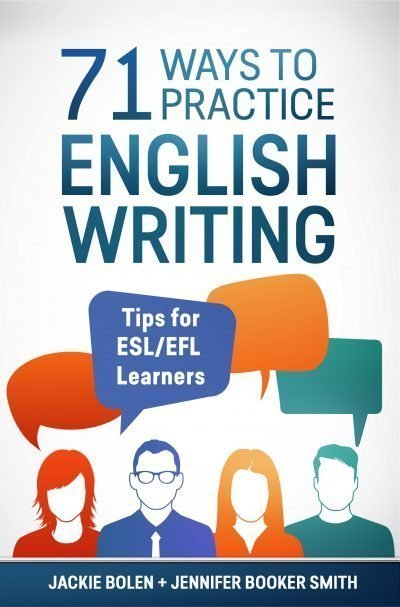
71 Ways to Improve English Writing Skills Exercises
If you’re looking for some English writing tips, you’ve come to the right place! We have three ESL writing tips for you, as well as a link to where you can get even more of them!
There are lots of reasons why someone might want to improve their English writing skills . Maybe you want to be able to have an English blog. Perhaps you want to be able to write an email at work without struggling. Maybe you are required to write a thesis or report in English for school or work. Whatever the case, these English writing tips will help you improve your skills.
Tips for Improving English Writing
Let’s get started with learning how to improve writing skills in English!
Don’t Forget about Fluency
When you’re trying to improve your English writing, it’s easy to focus on accuracy. Accuracy means correct grammar, spelling, punctuation, etc. Teachers and ESL writing textbooks often focus on accuracy because it’s easy-you’re either right or wrong. Did you spell that word correctly? Is your sentence grammatically correct?
How to improve writing skills in English and practice ESL writing? Don’t neglect the second half. The other side of the coin is fluency . This means how fast you write. Most ESL textbooks and ESL writing teachers don’t focus on this because it’s far more difficult. How do you make someone write faster? It’s sometimes impossible.
However, this doesn’t mean that you shouldn’t focus on it. Here’s a simple activity that you can use to improve your writing speed. Don’t forget to keep track of your progress!
ESL Writing Practice: Focus on Fluency
Learn More about Teaching ESL Writing:
Always Proofread Writing
Okay, this tip doesn’t only apply to English! It most definitely applies to any writing that you do, in any language. It’s really, really easy to make mistakes. I maybe even have one or two in this article that I didn’t notice. Before you hit “send,” always proofread carefully. Proofread means checking for grammatical errors, spelling errors, punctuation errors, etc.
For example, you might have to write a five-paragraph English essay in one hour for a test of some kind. If this is the case, here is how I’d use my time:
5-10 minutes: Make an outline with your main ideas
40-45 minutes: Writing
5-10 minutes: Proofreading
Check out this article for some tips about how to proofread your work. There’s even a link to the proofreading checklist that I used to give my university students in Korea.
You can easily find proofreading checklists and useful articles online that are very helpful for ESL students.
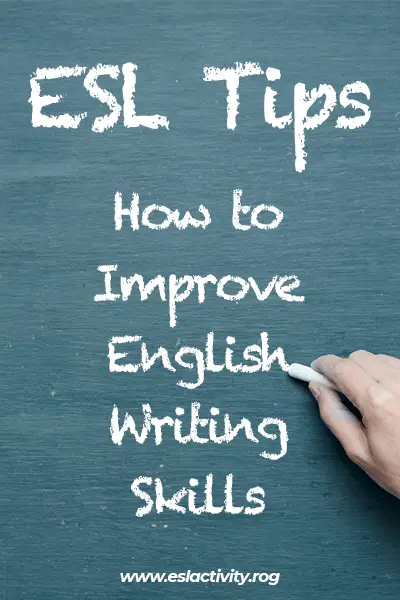
How to Improve English Writing Skills
Improve English Writing Skills Exercise: Fill out an Application Form
“Writing” is more than just writing an academic essay. Maybe you’re a beginner or intermediate student, and this is far too difficult for you. This doesn’t mean that you should give up! There are easier activities you can to do practice your basic English writing skills.
One of the best ESL writing skills exercises is this one. An excellent writing activity for beginner-intermediate ESL students is filling out a job or visa application form. It’s not so difficult to fill in information for specific questions. The activity is short enough that you won’t give up! It’s also very practical because you’re likely to have to fill out an application form in English at some point in your life.
Check out this article for the application form that we recommend starting with. There are also some helpful tips for when you’re just getting started.
ESL Writing Tip: Fill out an Application Form
Keep a Journal to Improve English Writing Skills
When my students ask me about how they can improve their English writing skills, I always recommend that they keep a journal. It’s a relaxed way to get some daily practice with writing in English.
And the format is totally up to you. Do it online in a blog format, or keep a very private journal under lock and key! One of the most important things, though, is that you put away your cellphone dictionary and just write using words and grammar that you already know. This will help you to stay motivated and keep going because it’ll be more fun than a chore.
Do you want to find out more about one of my favourite ESL writing tips? Check this out: Journalling for ESL .
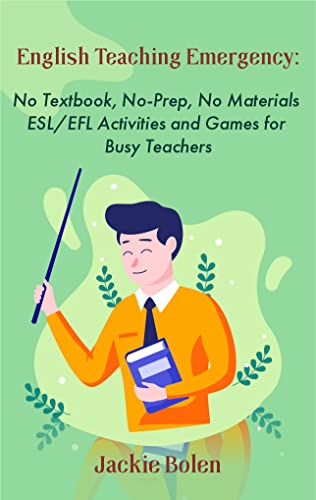
- Amazon Kindle Edition
- Bolen, Jackie (Author)
- English (Publication Language)
- 68 Pages - 11/12/2019 (Publication Date)
Use Conjunctions and Transitions for ESL Writing
Let’s be real here: Conjunctions and transitions are just so, so important in the English language, particularly when writing. If you neglect them, your writing quality will suffer in a big way. But, if you want to improve your basic English writing skills, this is one of the easiest ways that you’re going to find: mastering these words and knowing how to use them correctly.
The good news is that it’s really quite easy to practice using them.

How to Improve Writing Skills in English
Learn from Models
Analyze and learn from well-written English texts or essays. Observe the organization, sentence structure, vocabulary usage, and overall style. Take note of the techniques used and incorporate them into your own writing.
Seek Feedback
Ask a teacher, tutor, or native English speaker to review your writing and provide feedback. Their insights can help you identify areas for improvement and learn from your mistakes. Pay attention to their suggestions and apply them to your future writing. View feedback and mistakes as learning opportunities. Don’t be discouraged by errors; instead, learn from them. Take note of common mistakes you make and work on improving those areas.
Practice Writing Regularly
Set aside dedicated time for writing practice. Start with shorter tasks, such as writing paragraphs or short essays, and gradually progress to more complex writing assignments like a 5-paragraph essay . Regular practice will help you become more comfortable and proficient in expressing your thoughts in written form.
Use Writing Prompts
Engage in writing exercises using prompts or topics that stimulate your creativity. This can help you practice organizing your thoughts and structuring your writing effectively. Look for writing prompt resources online or create your own. Here are some writing prompts for beginners and also some creative writing prompts.
Need more Writing Tips for ESL Writing Practice?
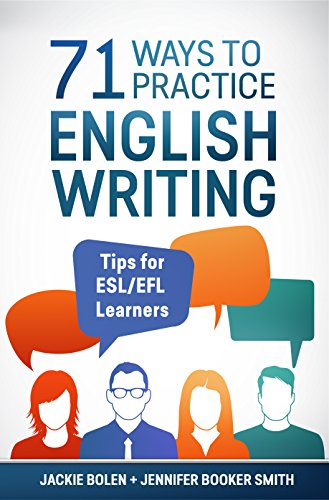
- 76 Pages - 03/03/2017 (Publication Date)
Did you find these ESL writing tips useful? We hope so! If your goal is to improve your English writing skills, then you’ll need to check out this book on Amazon, 71 Ways to Practice English Writing: Tips for ESL/EFL Learners.
These three tips about proofreading, filling out an application form, and not forgetting about fluency are directly from that book. And there are 68 more tips that will get you having fun while improving your writing. How to improve writing skills in English? There are a ton of awesome ideas found right here.
71 Ways to Practice English Writing is available in both digital and print formats. The (cheaper!) digital format can be read on any device, Smartphone, tablet, Mac, or PC. You just have to download the free Kindle reading app from Amazon. Are you ready to get better at writing?
Check out the book today, but only if you want to improve your English writing skills in a big way:
What about ESL Writing Textbooks?
Are you a teacher looking for some recommendations for the best ESL writing textbooks? Then look no further than right here! We strongly recommend the Great Writing Series by Keith Folse. It’s a nice blend of the process and product approach to writing.
There’s a range of levels from 1-4, taking your students from sentences to 5-paragraph essays. You can check out all the details for yourself on Amazon:

FAQs about English Writing Tips
Here are commonly asked questions about how to improve writing skills in English and the answers.
How can I improve my English writing skills online?
There are a number of great online resources you can check daily to improve your ESL writing skills. You can also take online courses that focus on improving ESL students’ writing skills. However, don’t forget the most important writing tip. You want writing to be a habit in order to really scale up your skills. Writing English journals is a great way to do everyday writing, making it a habit, and improving your skills.
What are the best English writing tips?
Following are the five best English writing tips for ESL students: always keep fluency in mind, proofread, fill out an application form, keep a journal, and use conjunctions & transitions.
How can I improve my writing words?
The most important thing is to first use the vocabulary and grammar that you already know. Keep the dictionary and mobile phone aside and try to use the words that you learned. If you want to learn more words to improve your writing, read more. Reading books will help you learn new vocabulary in the most memorable way. Then, you will be able to apply those new words to your future writings.
How can I practice writing every day?
The best way to practice writing English every day is to keep an English journal. It is private, so you do not have to be stressed about showing it to others. When you write daily journals, try to put aside the dictionary and focus on using the words and grammar that you already know.
Improve English Writing Skills: Join the Conversation
Do you have any tips or tricks for how to improve ESL writing skills that you’d like to share? Leave a comment below. We’d love to hear from you.
Also, be sure to share this article on Pinterest, Twitter, or Facebook. It’ll help other English learners like yourself find this useful resource.
Last update on 2022-07-17 / Affiliate links / Images from Amazon Product Advertising API
About Jackie
Jackie Bolen has been teaching English for more than 15 years to students in South Korea and Canada. She's taught all ages, levels and kinds of TEFL classes. She holds an MA degree, along with the Celta and Delta English teaching certifications.
Jackie is the author of more than 60 books for English teachers and English learners, including Business English Vocabulary Builder and 39 No-Prep/Low-Prep ESL Speaking Activities for Teenagers and Adults . She loves to share her ESL games, activities, teaching tips, and more with other teachers throughout the world.
You can find her on social media at: YouTube Facebook Pinterest TikTok LinkedIn Instagram
Top Selling ESL Activity Book

As an Amazon Associate, I earn from qualifying purchases.
More ESL Activities and Games

Business English ESL Activities, Games and Lesson Plan Ideas

List of Fruits with Pictures | Fruit Names in English

No Prep Games and Activities ESL | For Last-Minute Classes

Animals that Start with I | Names, Pictures, Fun Facts
About, contact, privacy policy.
Best-selling author and English teacher Jackie Bolen has been talking ESL activities and games since 2015. The goal is to bring you the best ideas, lesson plans, and activity recommendations for your TEFL classes.
Get in touch: About + Contact
Privacy Policy and Terms of Use
Email: [email protected]
Address: 2436 Kelly Ave, Port Coquitlam, Canada
Essay Writing Tips | Easy Essay Writing Skills
Table of contents.
Essay writing is a process that can be daunting, but with a bit of organization and practice, it can be a fun and rewarding experience. When starting out, it is important to have a plan. You should outline your essay and then draft it. Once you have a draft, you should critique it to make sure that it is effective and persuasive. Furthermore, let us learn a few skills and tips to write an effective essay.
Tips for Essay Writing
Writing an essay can seem like a daunting task, but it doesn’t have to be! Here are some helpful tips to make writing an essay easier:
Brainstorming Topic Ideas
Brainstorming ideas for essays is an important part of the writing process. It can help you to come up with ideas for topics, write more focused and organized essays, and develop a deeper understanding of the material you are writing about.
Here are a few tips to help you brainstorm ideas for essays:
Brainstorm ideas with friends or family. This can help you to get feedback and ideas that you wouldn’t have come up with on your own.
Read articles or books that are related to the material you are writing about. This will help you to understand the topic better and to start building ideas for your essay.
Search for online resources that can help you with your essay. There are a variety of sources out there that can provide you with helpful information.
Take time to reflect on the material you have read or studied. This can help you to come up with ideas for essays that are based on your own experiences or thoughts.
Creating Outline
Creating an outline for an essay is an essential step in writing an effective college essay. Outlining your essay will help you to organize your thoughts and ensure that your essay is well-organized and meaningful.
There are many different types of outlines that can be used for essays, but the most common outline is the chronological one. This outline will list the date, the content, and a brief summary of the event.
Another common type of outline is thematic. This outline will explore a particular topic or idea and will include specific headings for each section.
Want to learn Paraphrasing? click here
Once you have decided on an outline, you will need to begin brainstorming your essay’s content. This is where your outline will be invaluable. By listing key points and providing brief summaries, your outline will help you to organize your thoughts and focus on the most important information. Once you have completed your outline, it is time to begin writing. By following your outline and focusing on key points.
Time Management
Take your time. Don’t rush through the writing process. Make sure to have ample time to come up with a plan, write, and revise. Also, avoid spending too much time on non-detailed content. For example; divide your time according to the outline you created. Give more time to the point of the outline that has more gaps to fill with words. If you are sitting in an exam, divide the time accordingly as you have more topics to attempt. Also, remember the comprehensiveness and avoid unnecessary detail.
Research for Essay Writing
Research, if necessary. If you need to support your points with research, make sure to do so thoroughly. When researching for an essay, it is important to be thorough in your search for information. Although there are many sources of research information available, not all of them are appropriate for every essay topic. Here are some tips for selecting the best sources of research information for your essay:
Consult your teacher or writing guide for specific essay topics and information on appropriate sources of research.
Use library resources, including online databases and search engines, to find information on specific topics.
Talk to fellow students or colleagues about their personal experiences or research findings related to the essay topic.
Consult reference books or encyclopedias to find specific information on topics related to the essay.
Review journal articles or other sources of information to gain a better understanding of the topic.
Take advantage of online learning opportunities, such as online lectures or course materials, to gain additional research information.
Use creativity and imagination.
Comprehension
Use clear and concise language. Avoid any unnecessary filler words or phrases that may distract the reader.
Want to learn punctuations? click here
The following tips are designed to help you write a comprehensive essay:
Start with a thesis statement.
Your thesis statement should be the focal point of your essay, and it should be clear and concise. It should also be based on evidence from your reading and research.
Plan your essay structure.
Your essay should be divided into sections that support your thesis. Each section should contain a powerful argument and evidence to support it.
Use strong transitions.
Your essay will be more persuasive if it flows smoothly from one section to the next. Use strong transitions to help your readers follow the argument.
Use effective language.
Use language that is clear and concise. Avoid using jargon or complex language
Proofreading an Essay
Proofread and edit. Make sure to check for any typos, grammar mistakes, or factual inaccuracies. Proofreading for essay writing can be a daunting task, but it’s essential to make sure your essay is error-free. Proofreading refers to the correction, addition, or removing letters or words. Here are a few tips to help you proofread your essay:
Use a proofreading tool. A proofreading tool can help you quickly check for grammar and spelling errors, as well as common typos.
Before you submit your essay, check it against a source such as a dictionary or internet. This will help you to catch any mistakes or errors that you may have missed.
Use the second pair of eyes. Once you’ve proofread your essay, let a friend or family member read it for accuracy. This will help you catch any errors that you may have missed to fix.
Make sure your essay is well-organized. The structure of your essay is important, and errors in this area can be difficult to spot. Make sure your essay is well-organized and follows
For proofreading, you can use one of the well-known tools Grammarly .
Essay Writing Format
There are three basic parts of essay while writing in a proper format.
Introduction : In order to get your reader interested in what you have to say, you first have to introduce the topic. This can be done by discussing the issue at hand, giving a background, or simply stating the facts. It is a portion where we give our words about the topic. A brief introduction can be given about the topic in few lines. This portion holds complete but brief overview of main topic.
Body : This is the main part of any essay that consists of complete information about the topic. It also has the largest part of the essay. After introducing the topic, it’s important to provide some background information. This can include discussing the issue from different angles, providing historical context, or discussing relevant legislation.
To learn Kinds of Letter, Click Here
After providing background information and introducing the issue, it’s important to analyze it. It can be done by looking at different angles, discussing the pros and cons of the situation, or providing solutions.
Conclusion : In the last part of the format, the writer concludes the overall topic. It includes suggestion or improvements of your thoughts. You can also make an argument for or against the Issue.
Tips for Essay Formatting
There are a few things to keep in mind when formatting your essay for submission. The following are general tips, but always consult the specific instructions for your essay format.
Start your essay with a strong and concise opening paragraph that introduces the topic, sets the mood, and provides key details about your essay.
In your body paragraphs, provide specific, evidence-based detail about your point of view. Make use of clear, concise language and avoid jargon.
End each paragraph with a sentence that sums up the main points of your essay.
Use headings to organize your essay and make it easy to read.
Keep your essay in a single font typeface, and use standard margins (1 inch on the left, 1 inch on the right, and 1 inch in the center).
Finally, be sure to submit your essay as a PDF file to avoid any errors.
Essay Writing Examples for Students
Follow any specific guidelines provided by your instructor. This may include requirements for formatting, citation style, and length.
Here are a few examples of essay prompts and how a student might approach them:
Topic : Analyze the impact of social media on modern communication.
To write an essay on this topic, a student might start by defining social media and discussing its widespread use. They could then discuss how social media has changed the way people communicate, both positively and negatively. For example, social media can make it easier for people to connect, but it can also contribute to a lack of face-to-face communication and the spread of misinformation. The student could then consider the long-term impact of these changes and suggest potential solutions or strategies for addressing any negative effects.
Make an explanation about the causes and consequences of the American Revolution. To write an essay on this topic, a student might begin by discussing the various economic, political, and social factors that led to the Revolution. They could then discuss the events of the Revolution itself, including key battles and key figures. The student could also consider the consequences of the Revolution, both for the United States and other countries around the world. They might discuss how the Revolution influenced the development of democracy and the idea of self-governance, as well as any ongoing debates or controversies related to the Revolution.
Topic : Compare and contrast two different historical events. To write an essay on this topic, a student might choose two events that have some similarities and some differences. They could then outline the key points of each event and discuss how they are similar and how they are different. For example, a student might compare and contrast the French Revolution and the Russian Revolution, discussing the similarities in their causes and the differences in their outcomes. They could also consider the long-term impact of each event and how it continues to be remembered or studied today.
Essay Vs Paragraph
There is a technical difference between an essay and a paragraph. This is very concerning to the students from the exams point of view. An essay should have multiple paragraphs whereas when a student asks to write a paragraph on a topic, he/she must write that in one paragraph instead of multiple paragraphs.
Frequently Asked Questions
What are the 5 steps to writing an essay.
1. Pre-write: This step involves brainstorming ideas and organizing your thoughts. You might create an outline, a mind map, or a list of key points.
2. Research: If your essay requires research, this is the time to gather and organize your sources. Make sure to take notes and record the sources you use, as you will need to include citations in your essay.
3. Write a draft: This is the first complete version of your essay. Don’t be too worry about making it perfect at this stage – just put attention on getting your ideas down on paper.
4. Revise: This is the time to review and edit your essay. Look for areas where you can improve your organization, clarity, and supporting evidence.
5. Edit and proofread: Once you have revised your essay, it’s time to check for any spelling, grammar, or punctuation errors. It can also be helpful to have someone else read your essay and give you feedback.
What are the features of good essay?
1. A clear and well-defined thesis statement: The thesis statement is the main argument or point of your essay. It should be concise and clearly stated in the introduction.
2. Supporting evidence: A good essay should present evidence to support the thesis statement. This evidence can come from a variety of sources, including academic research, personal experience, or examples.
3. Coherent structure: A good essay should be well-organized and easy to follow. It should have a clear introduction, body, and conclusion, with each paragraph discussing a specific aspect of the topic.
Clarity and concision: A good essay should be written in clear, concise language. Avoid jargon and long, complex sentences.
4. Correct grammar and spelling: Make sure to proofread and edit your essay to ensure that it is free of any spelling or grammar errors.
5. Proper citation: If you use sources in your essay, be sure to cite them correctly using the appropriate citation style. This helps to give credit to the original authors and helps to establish the credibility of your essay.
What is the main aim of a good essay?
The main aim of a good essay is to convey information, ideas, or arguments clearly and effectively. A good essay should present a well-defined thesis statement or main argument, and it should use evidence and examples to support this argument.
A good essay should also be well-organized and easy to follow, with a clear introduction, body, and conclusion. It should be written in clear, concise language and should avoid jargon or complex sentences.
In addition, a good essay should be well-researched and should use credible sources to support its arguments. It should also be properly cited, giving credit to the original authors of any sources used.
Overall, the main aim of a good essay is to present a clear and well-supported argument or idea that engages the reader and persuades them to consider your perspective.
What is the main paragraph of an essay?
The main paragraph of an essay is often referred to as the body paragraph. The body paragraphs are the main sections of your essay, and they come after the introduction. The body paragraphs should present your main ideas and support them with evidence and examples.
Each body paragraph should focus on a specific aspect of your topic and should begin with a topic sentence that introduces the main idea of the paragraph. The rest of the paragraph should then be used to provide evidence and examples that support this main idea.
It’s important to make sure that your body paragraphs are well-organized and support your thesis statement. They should also be coherent, with each paragraph flowing logically from one to the next.
In general, the body paragraphs are the most important part of your essay, as they are where you present your main ideas and supporting evidence.
Related Posts
Letter writing in englis – parts and types, dialogue writing – write a perfect dialogue, what is paraphrasing | how to paraphrase with examples, what are writing skills | how to improve writing skills, leave a comment cancel reply.
You must be logged in to post a comment.

IMAGES
VIDEO
COMMENTS
Here are some strategies for developing your own written communication: 1. Review grammar and spelling basics. Grammar and spelling form the foundation of good writing. Writing with proper grammar and spelling communicates your professionality and attention to detail to your reader. It also makes your writing easier to understand.
Avoid transition words that don't add anything to the sentence and unnecessary wordiness that detracts from your argument. Furthermore, use the active voice instead of the passive whenever possible (e.g., "this study found" instead of "it was found by this study"). This will make your essay's tone clear and direct. 3.
Most advice about writing looks like a long laundry list of "do's and don'ts." These lists can be helpful from time to time, but they're hard to remember … and, therefore, hard to ...
Essay writing process. The writing process of preparation, writing, and revisions applies to every essay or paper, but the time and effort spent on each stage depends on the type of essay.. For example, if you've been assigned a five-paragraph expository essay for a high school class, you'll probably spend the most time on the writing stage; for a college-level argumentative essay, on the ...
Tips for Reading an Assignment Prompt. Asking Analytical Questions. Thesis. Introductions. What Do Introductions Across the Disciplines Have in Common? Anatomy of a Body Paragraph. Transitions. Tips for Organizing Your Essay. Counterargument.
In this post, we will explore the best essay writing tips and cover different essay types, the essay structure, an essay outline and much more to help you succeed on an upcoming English essay. These 10 tips are perfect for school, college or university essays, as well as English exams like IELTS, PTE and TOEFL.
We bring you eight useful tips to write better essays in English. 1. Keep a Vocabulary Notebook. Using the right vocabulary is an essential element of writing essays. When you make efforts to expand your vocabulary, you will be able to pick accurate words to take your writing to the next level. Instead of coming across new words and forgetting ...
1. Create a Word Bank. This is an interesting approach to writing your essay. First, choose a topic and write a thesis. A thesis is the main argument of your essay. For instance, if your topic is reading, your thesis might be "Reading makes you smarter.".
So many students sit down to write an essay without a plan. They just start writing whatever comes to their mind. However, to write a top-graded essay in English, you must plan and brainstorm before you begin to write. Here are some strategies you can use during the prewriting stage: Freewriting. Looping.
There are some good ways to improve your all-round writing skills, whatever you want to write: To write well, read a lot and read different things e.g. storybooks, newspapers, magazines. As you read, notice the words, their spellings, ideas in the writing and the message they are trying to convey. Try to use this in your own writing to build ...
Our free online tool helps you to practise your writing and get valuable feedback instantly. Write & Improve is simple to use: just choose a task, write or upload a written response and use the feedback to quickly improve. It shows you how to improve your spelling, grammar and vocabulary. Join over 2 million learners of English who have used ...
An essay is a focused piece of writing that explains, argues, describes, or narrates. In high school, you may have to write many different types of essays to develop your writing skills. Academic essays at college level are usually argumentative : you develop a clear thesis about your topic and make a case for your position using evidence ...
Essay Writing Skills & Techniques. By Shane Mac Donnchaidh September 7, 2021March 5, 2024 March 5, 2024. Many of our articles and guides frequently refer to essay writing, so to simplify this, we have collated our best essay writing skills and techniques into one section to assist students and teachers in learning the fundamentals of writing a ...
Conclusion Paragraph: Restate your thesis statement. Summarize your main points and arguments. Leave the reader with something to think about. Remember, this is just a basic structure you can refer to. As you write your own essay, you may find that your ideas change or that the direction of the essay has shifted.
Our 100+ Best Creative Writing Practice Exercises and Lessons. Now that you know how we practice writing at The Write Practice, here are our best writing practice lessons to jumpstart your writing skills with some daily writing exercises, for beginner writers to even the most expert writers: All-Time, Top 10 Writing Lessons and Exercises
A PDF providing further guidance on writing science essays for tutorials is available to download.. Short videos to support your essay writing skills. There are many other resources at Oxford that can help support your essay writing skills and if you are short on time, the Oxford Study Skills Centre has produced a number of short (2-minute) videos covering different aspects of essay writing ...
Try writing the same story from different perspectives and in different verb tenses (past & present). Don't write everything in the most obvious way. Be creative! 6. You need a friend who can check your writing. If you have a friend who knows English well and can check your writing work, you are very fortunate.
There are different types of model texts, with writing tips and interactive exercises that practise the writing skills you need to do well in your studies, to get ahead at work and to communicate in English in your free time. Take our free online English test to find out which level to choose. Select your level, from A1 English level ...
Sample College Essay 2 with Feedback. This content is licensed by Khan Academy and is available for free at www.khanacademy.org. College essays are an important part of your college application and give you the chance to show colleges and universities your personality. This guide will give you tips on how to write an effective college essay.
5-10 minutes: Make an outline with your main ideas. 40-45 minutes: Writing. 5-10 minutes: Proofreading. Check out this article for some tips about how to proofread your work. There's even a link to the proofreading checklist that I used to give my university students in Korea.
Brainstorming ideas for essays is an important part of the writing process. It can help you to come up with ideas for topics, write more focused and organized essays, and develop a deeper understanding of the material you are writing about. Here are a few tips to help you brainstorm ideas for essays: Brainstorm ideas with friends or family.
MyStylus: MyStylus is a good academic writing tool that you can use to write essays, assignments and research papers. It uses smart technology to improve your writing style and fix mistakes. You can try it for free or choose from paid plans starting at $19.95/month. It's easy to use and helps make your writing better.